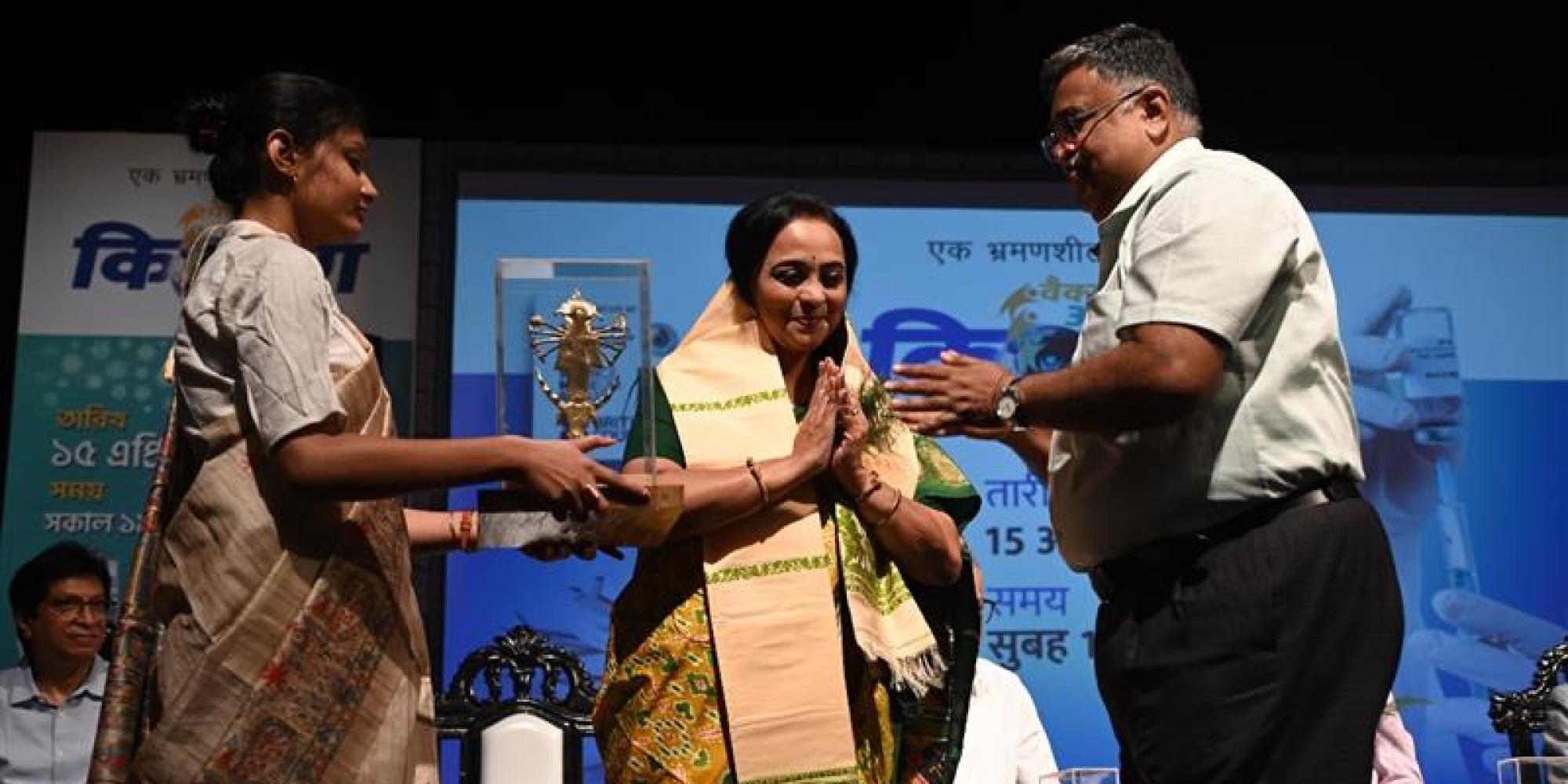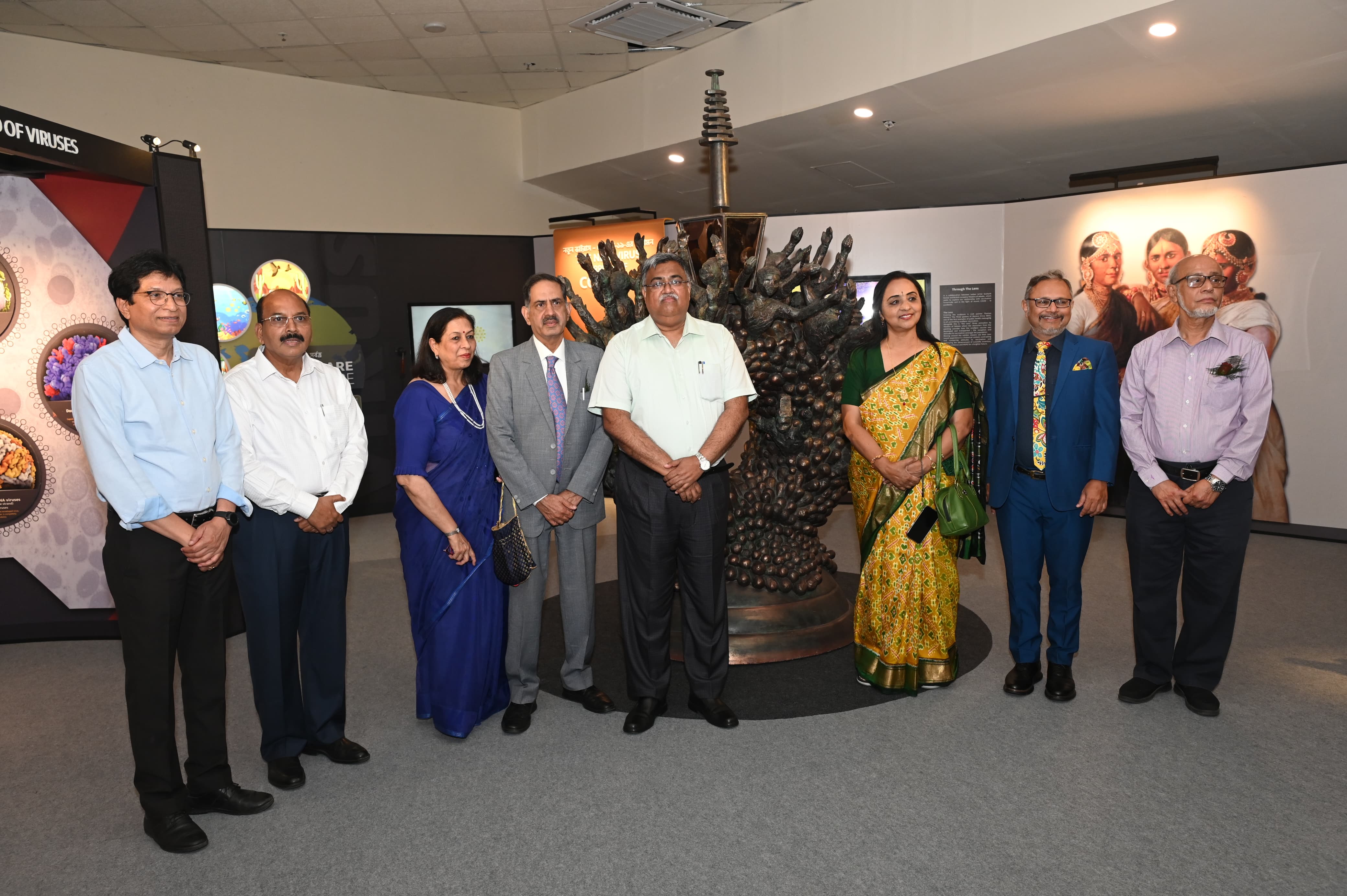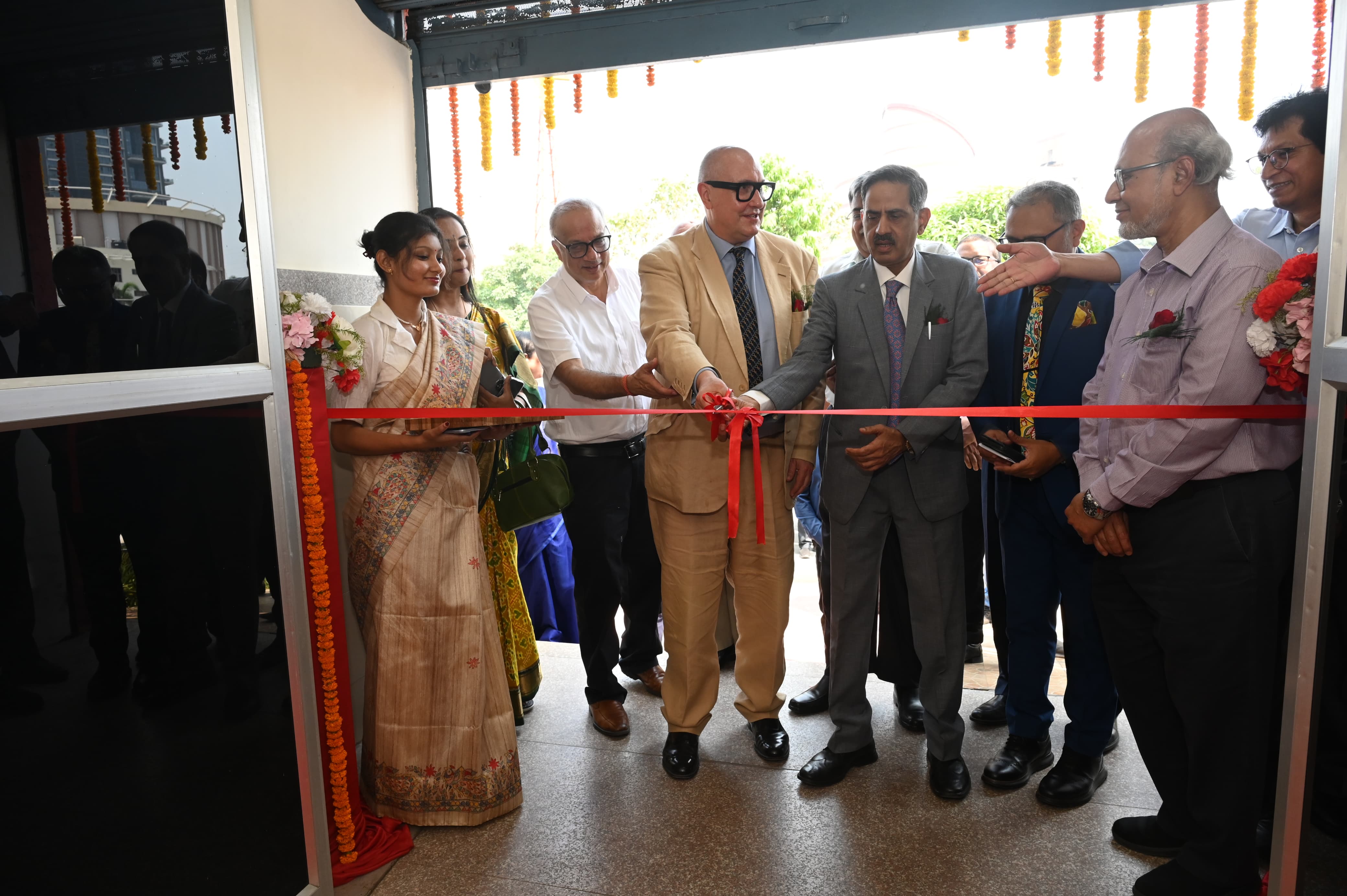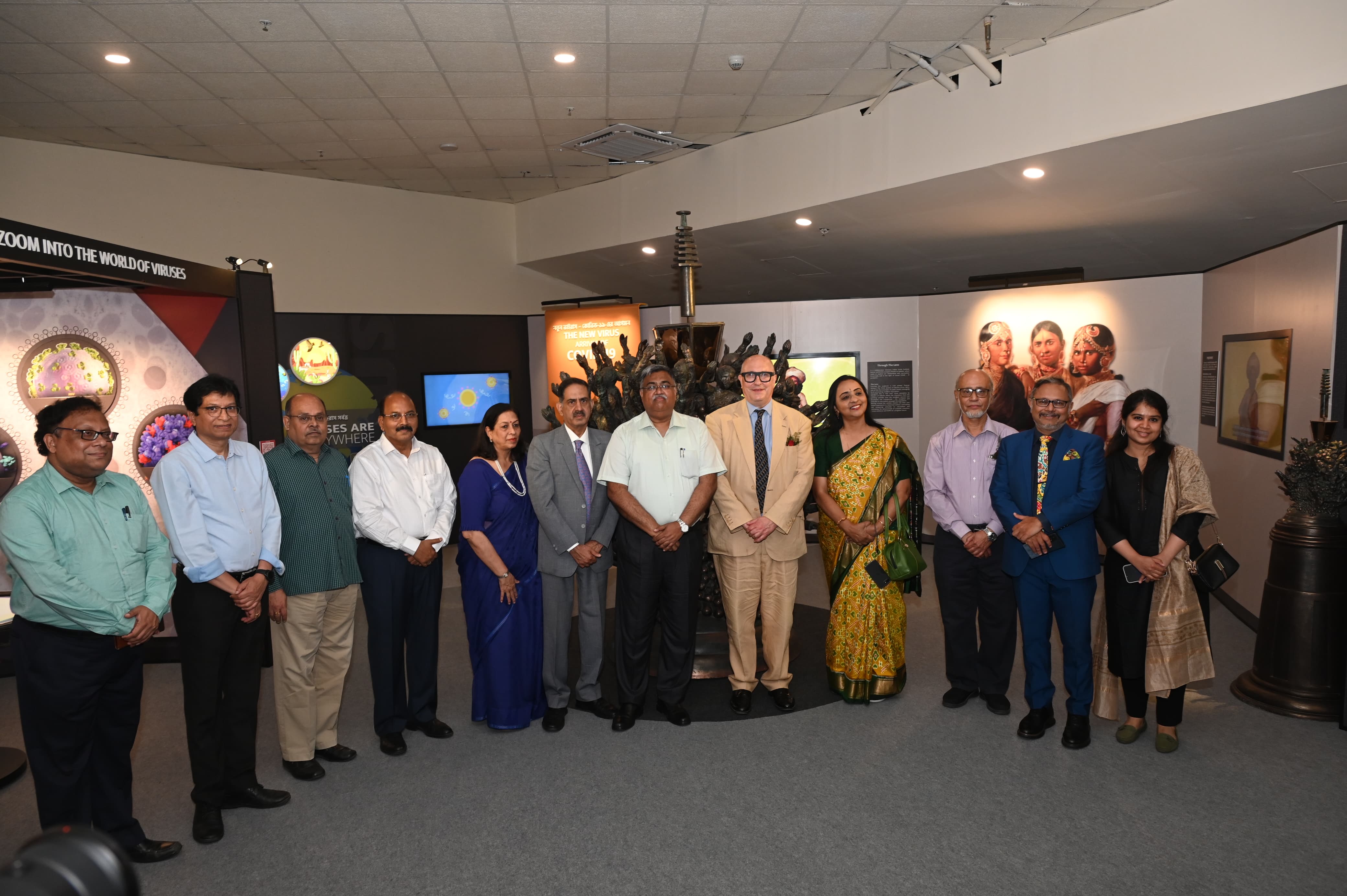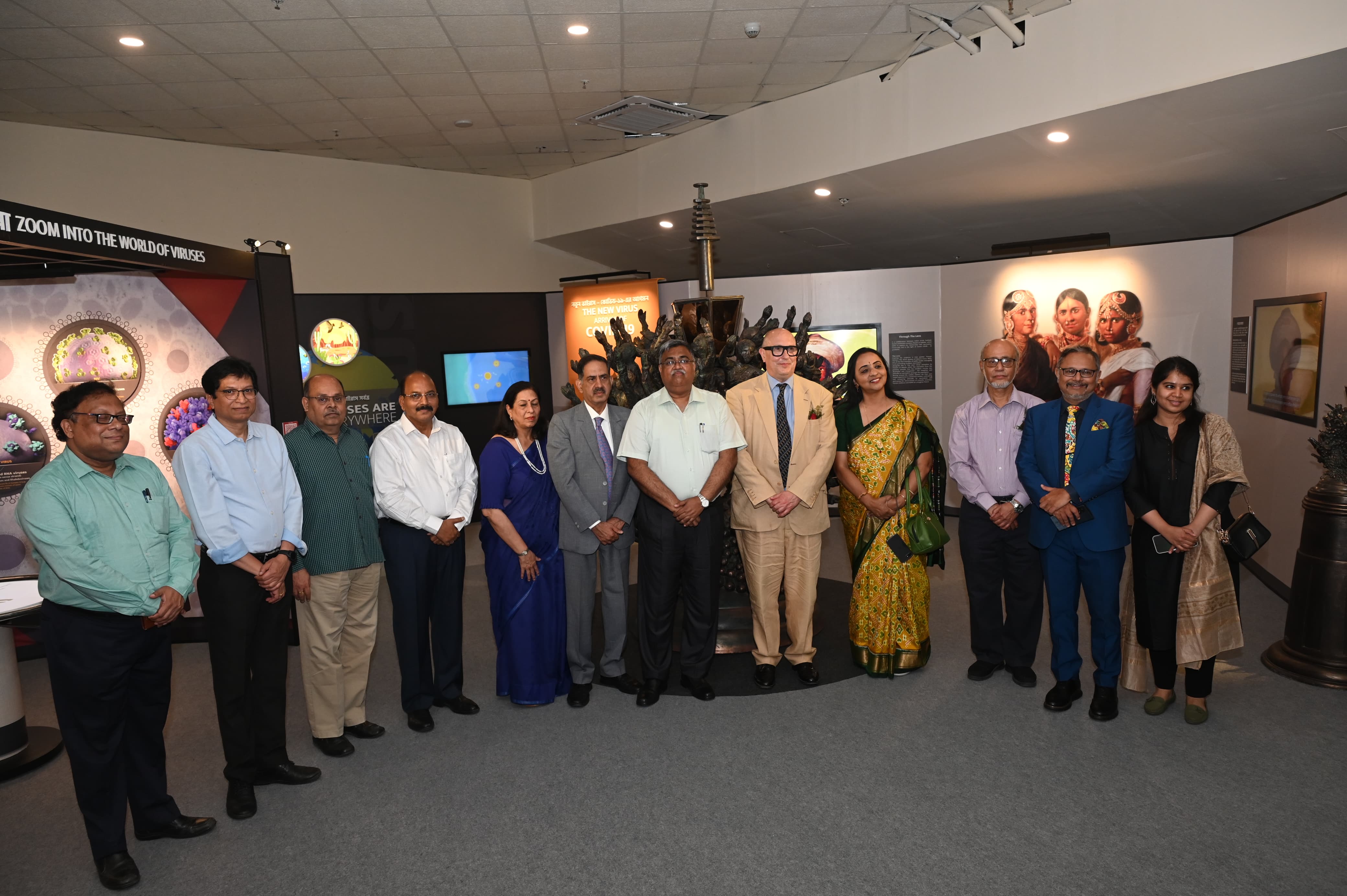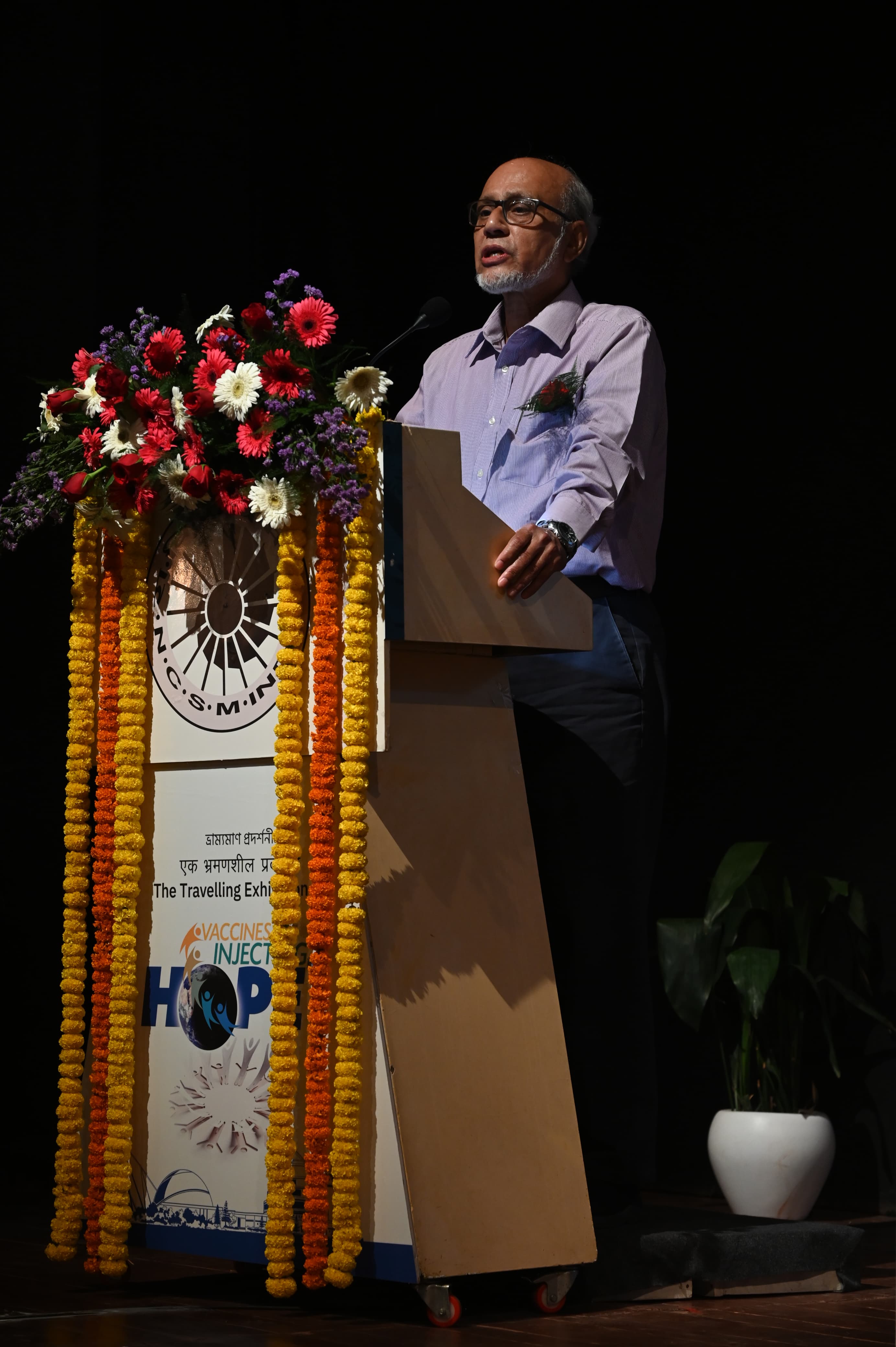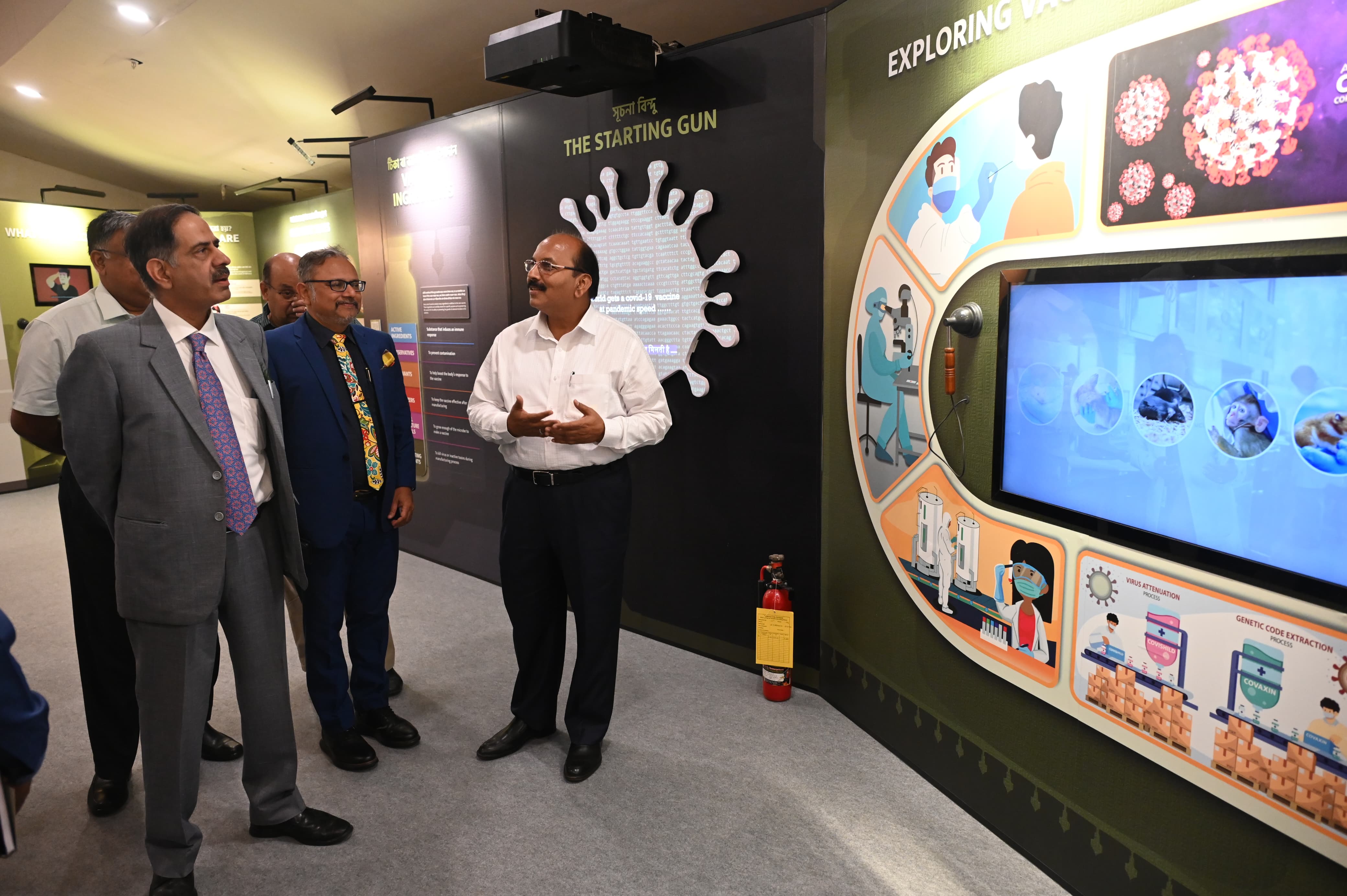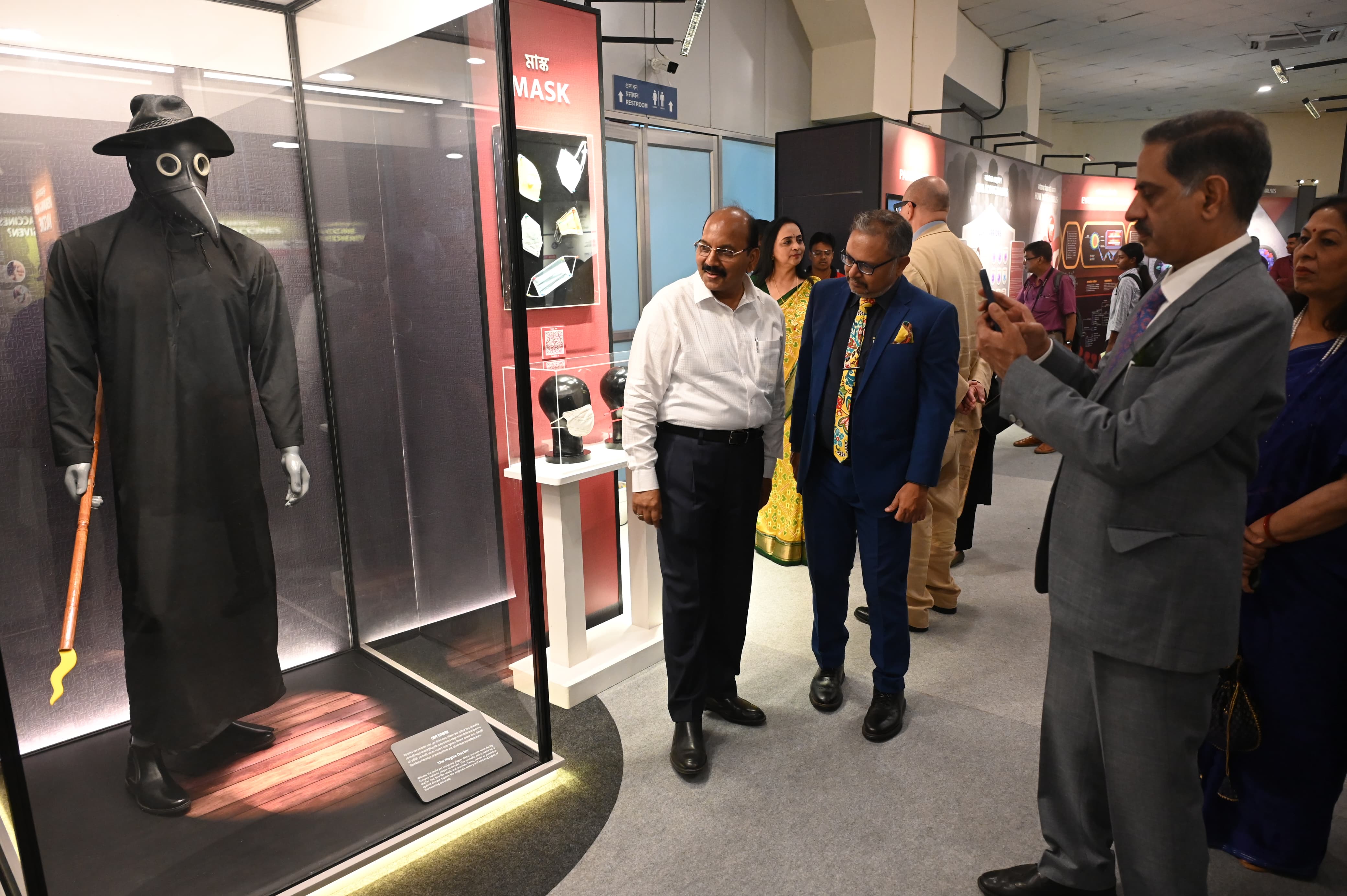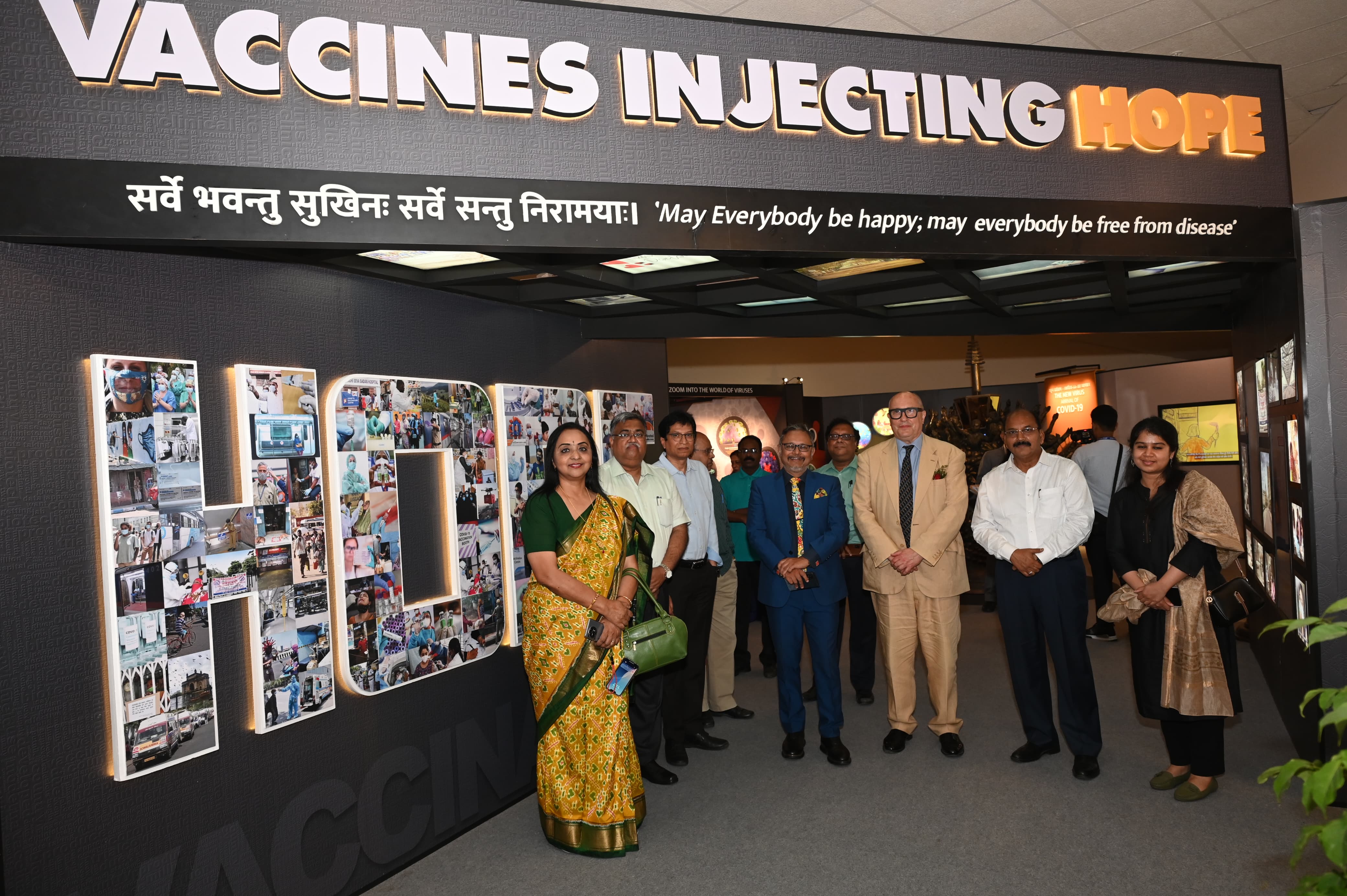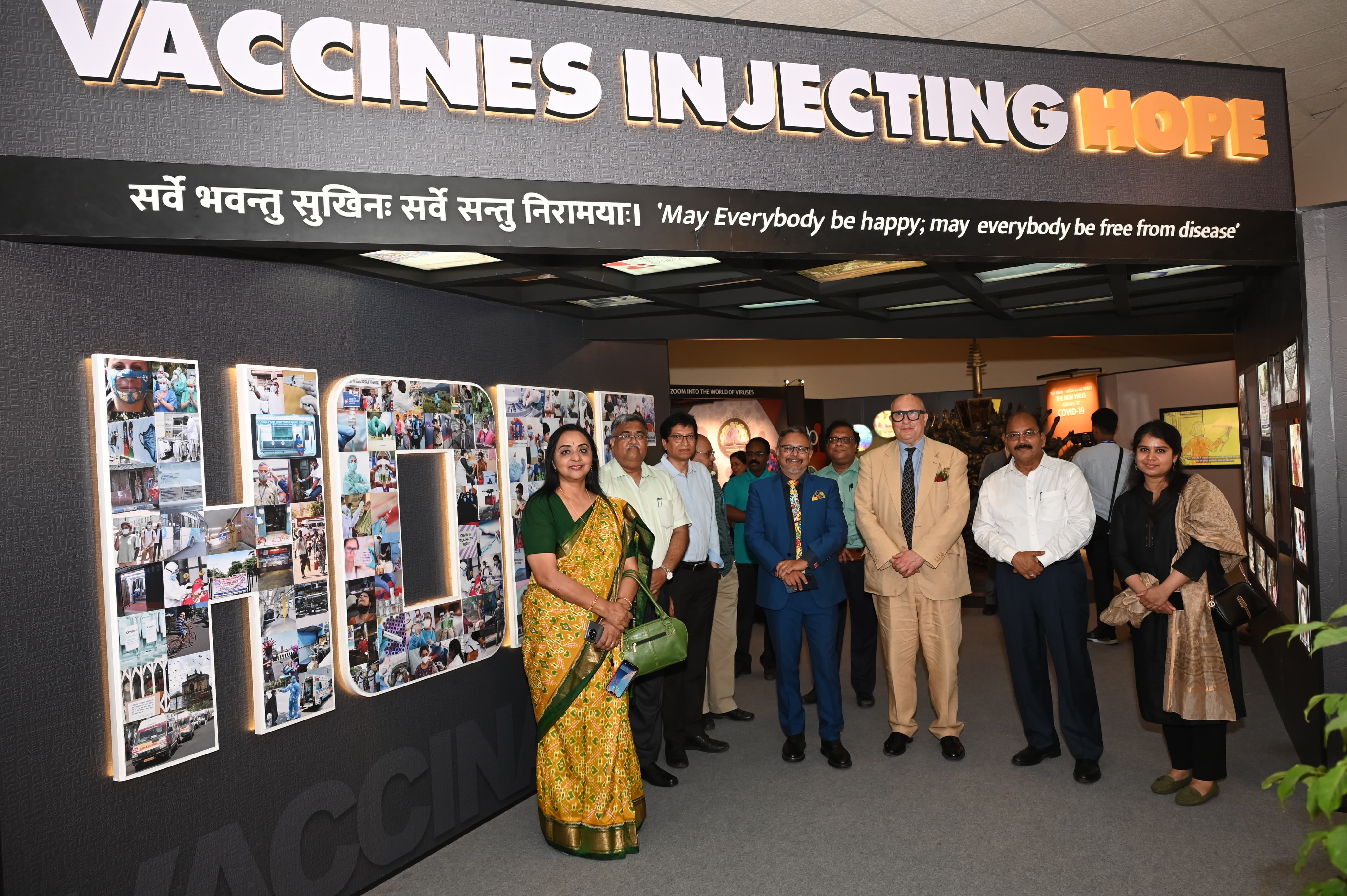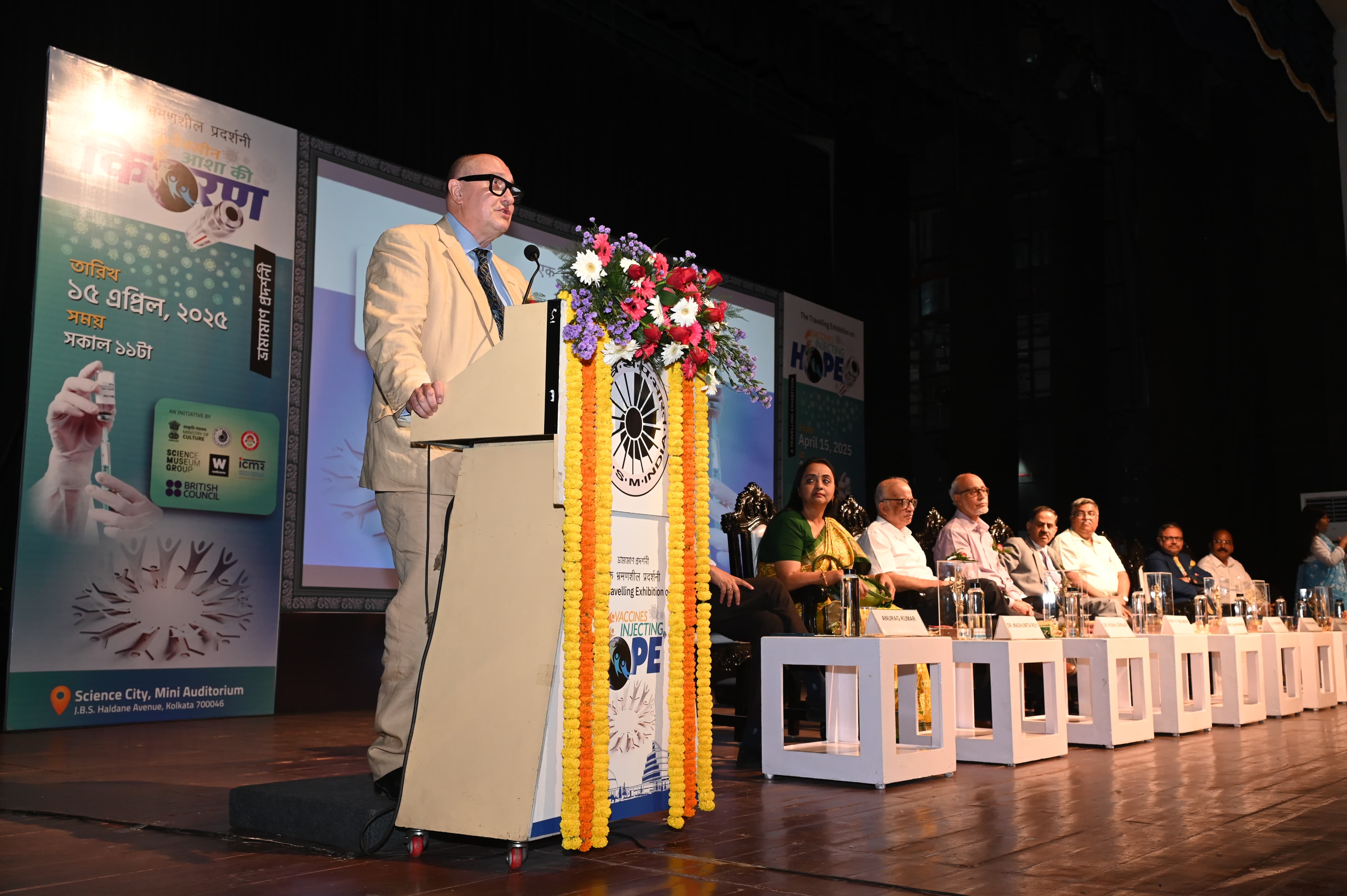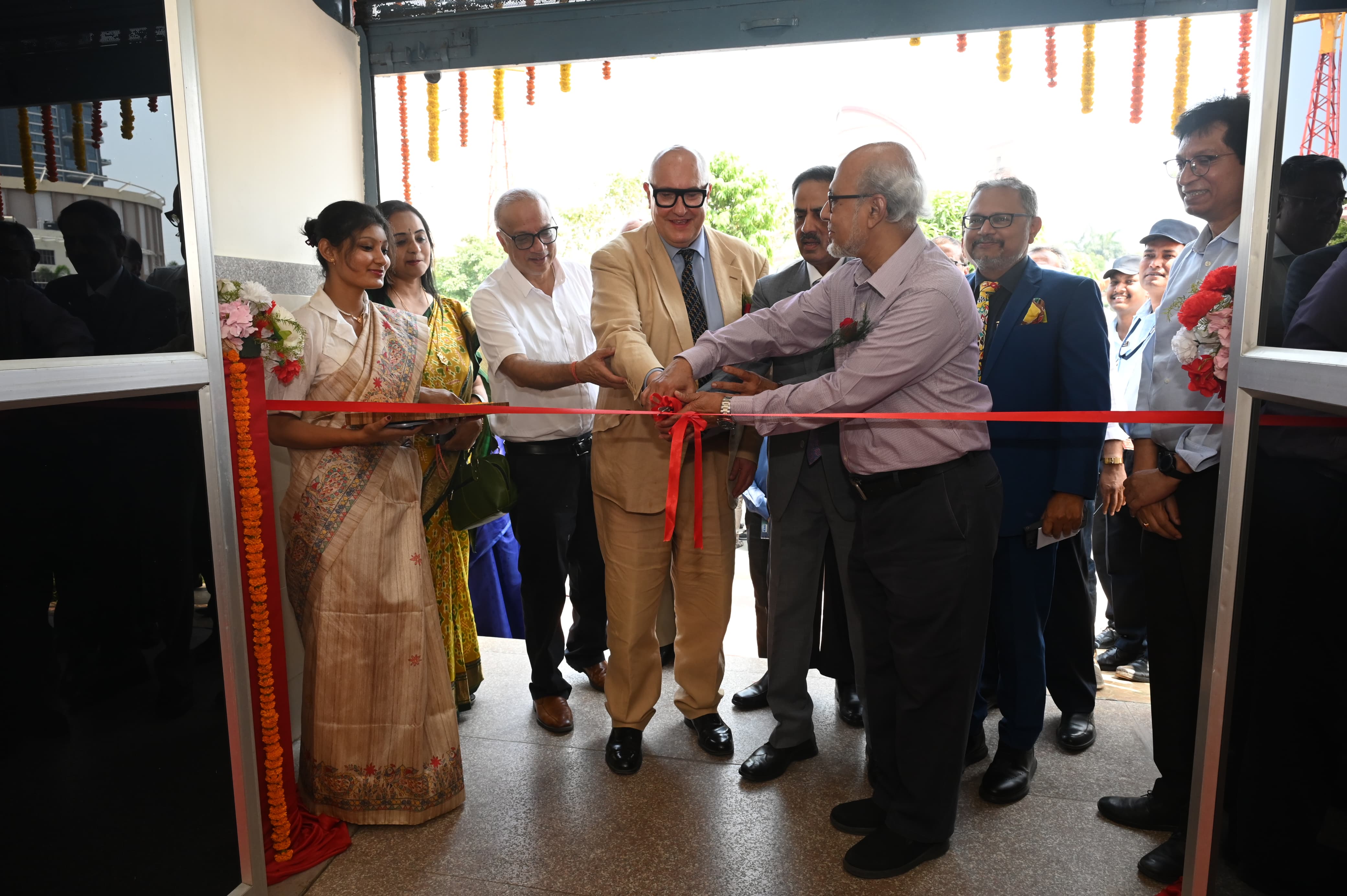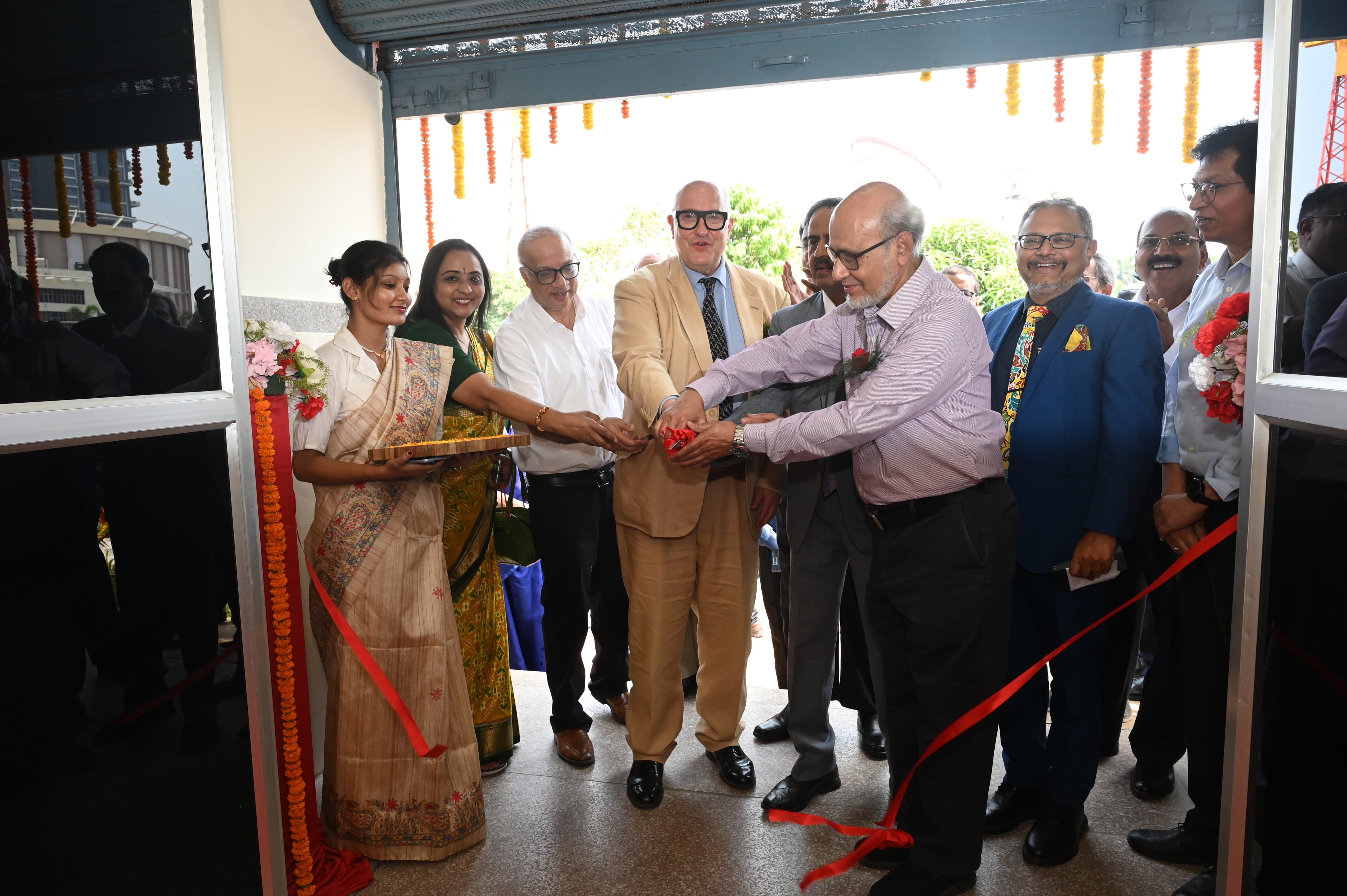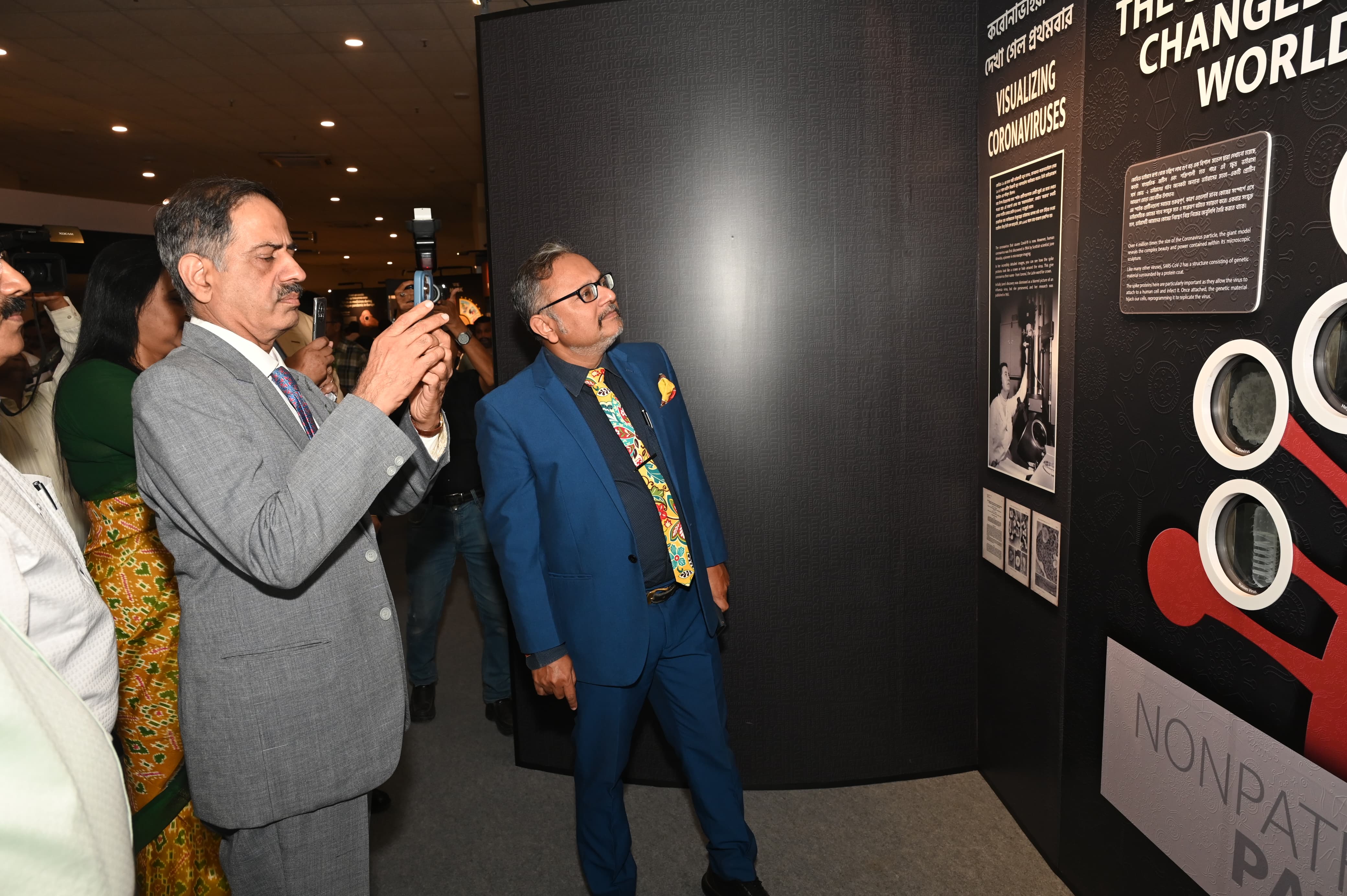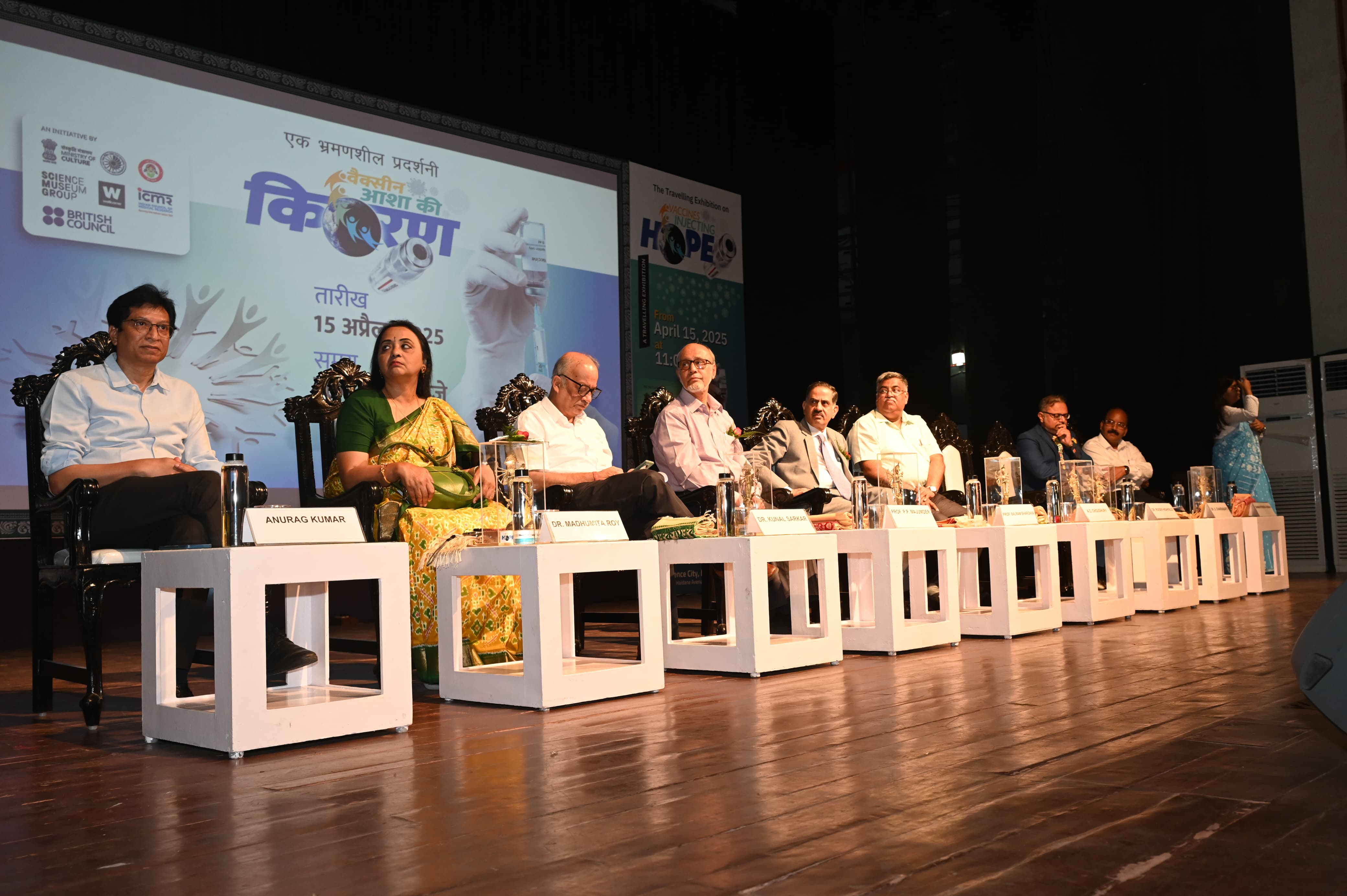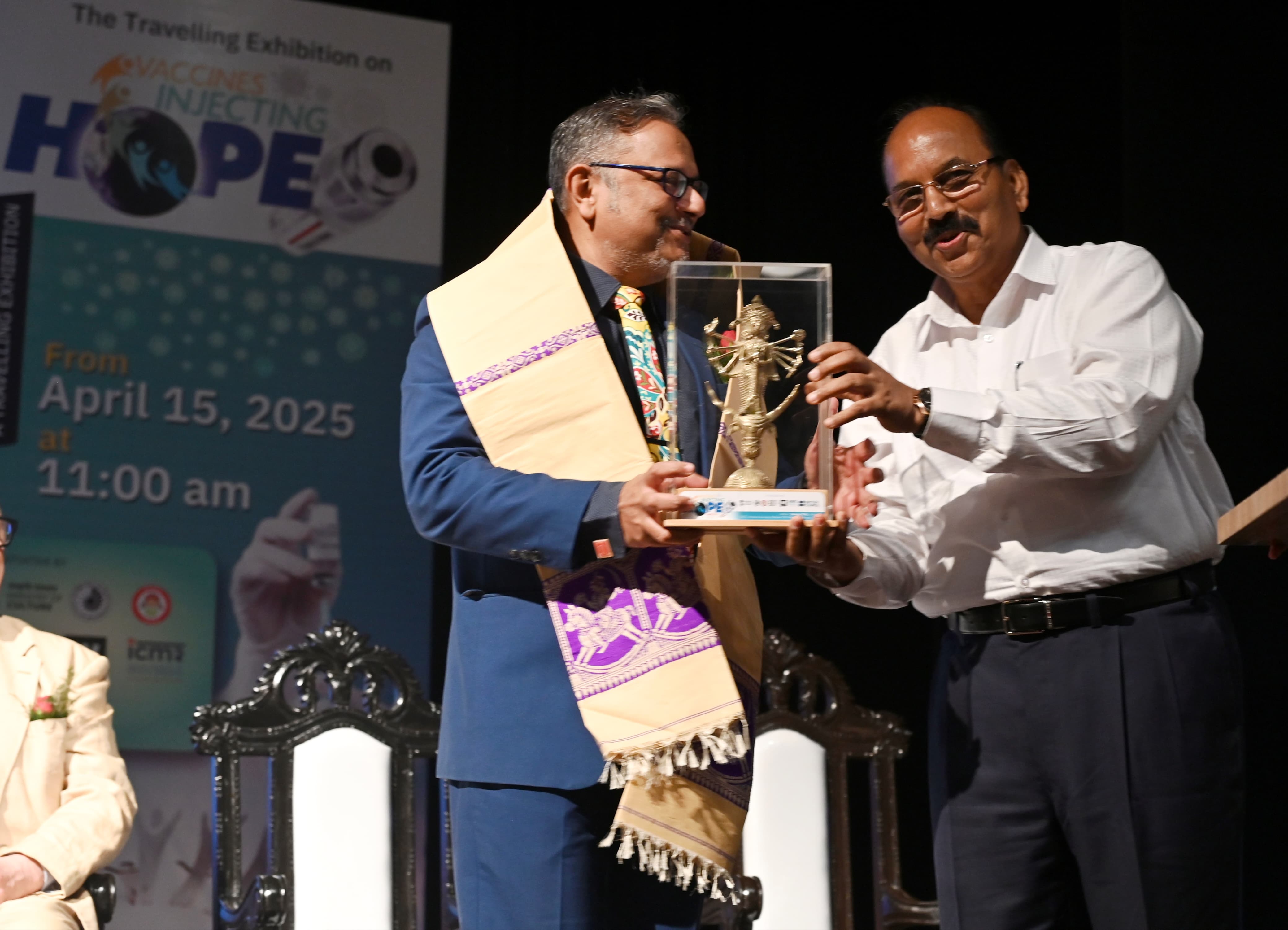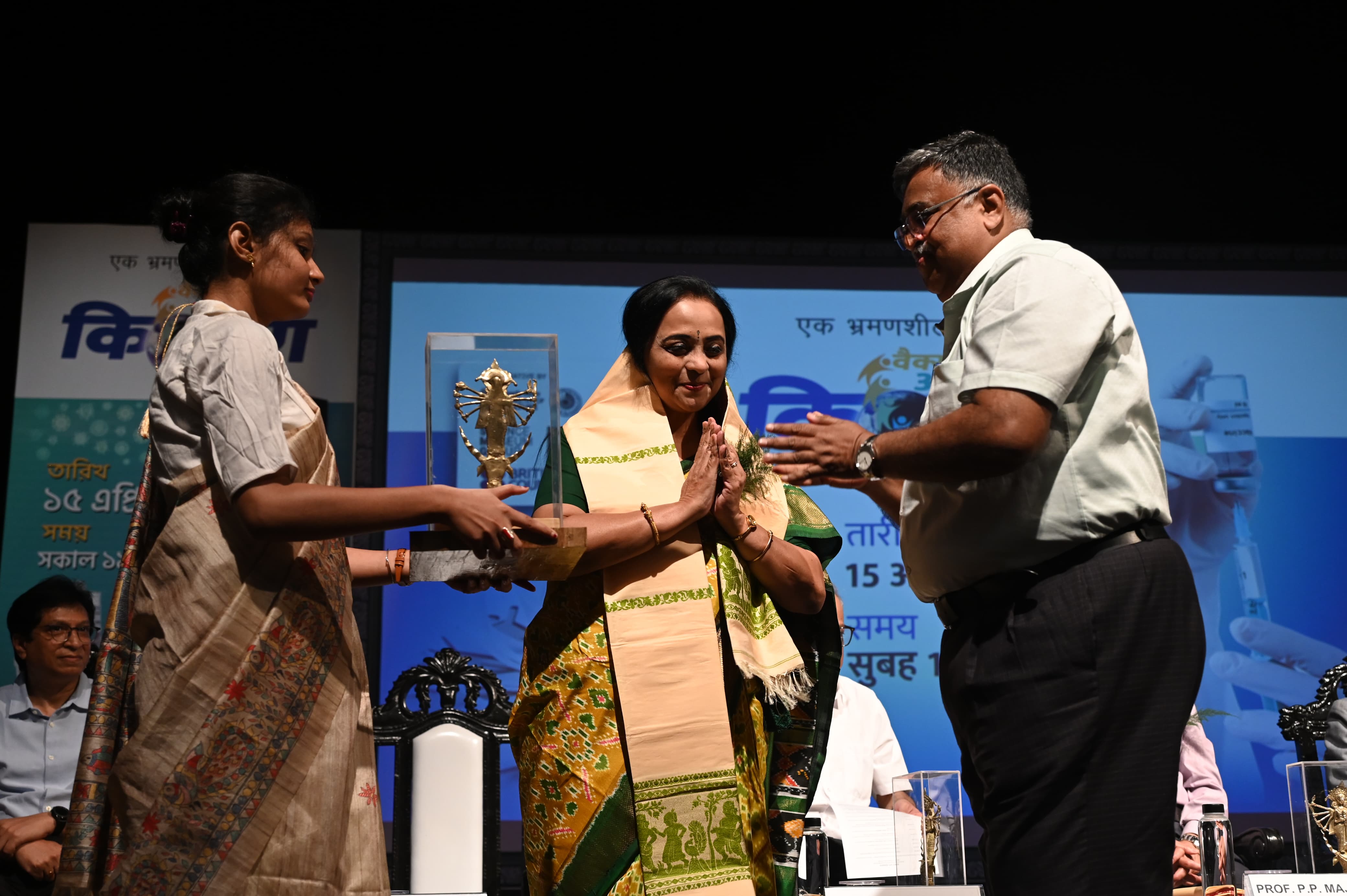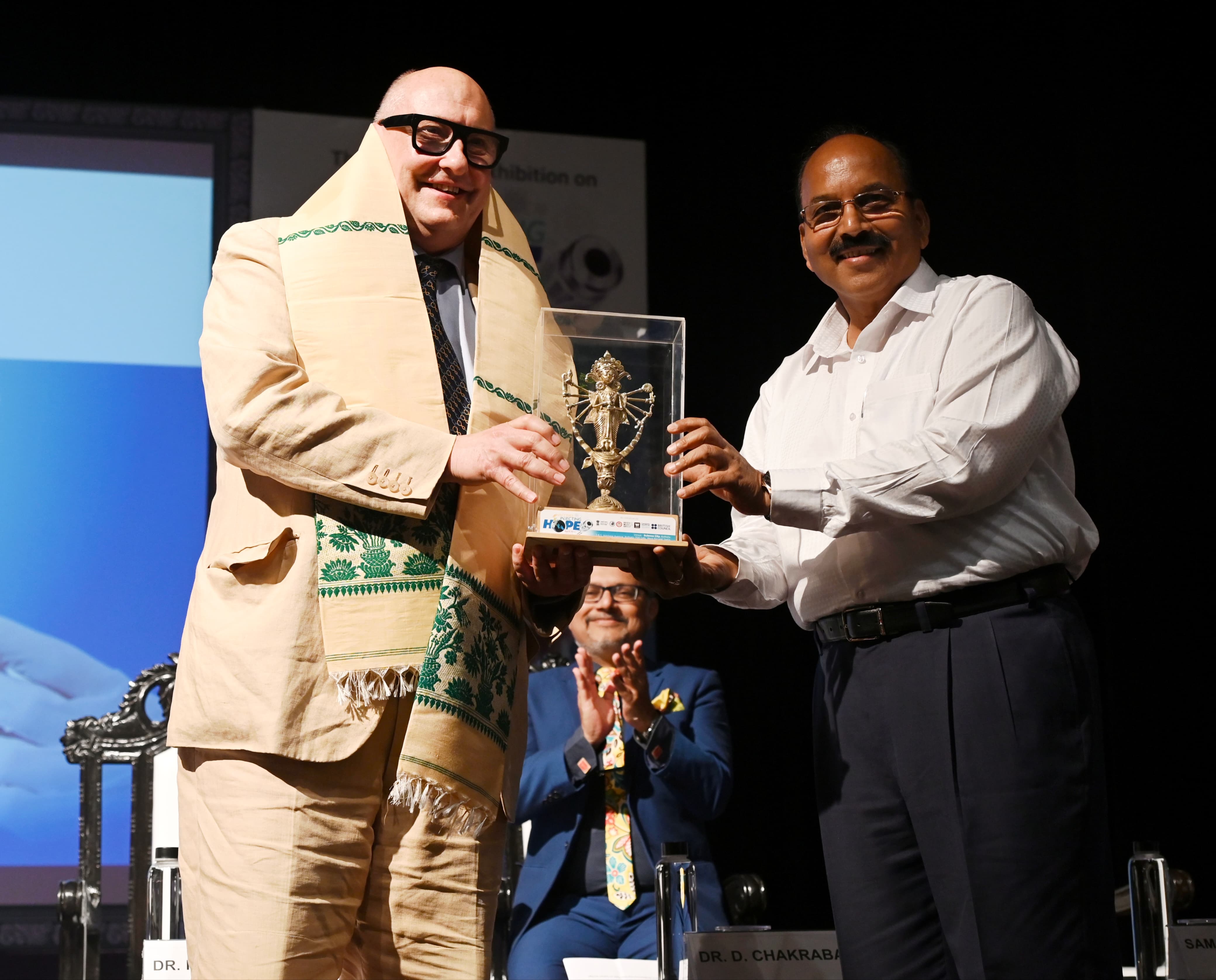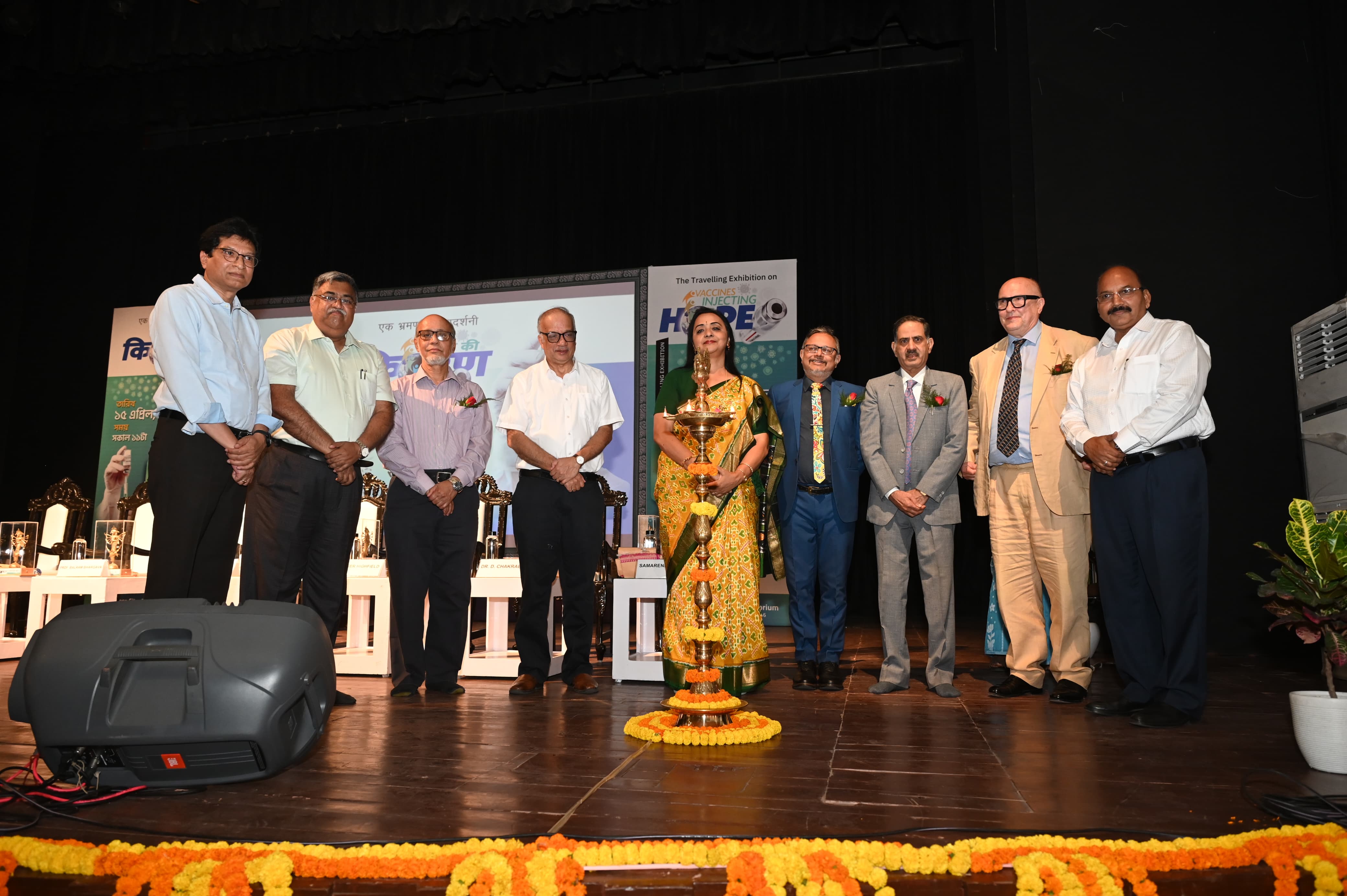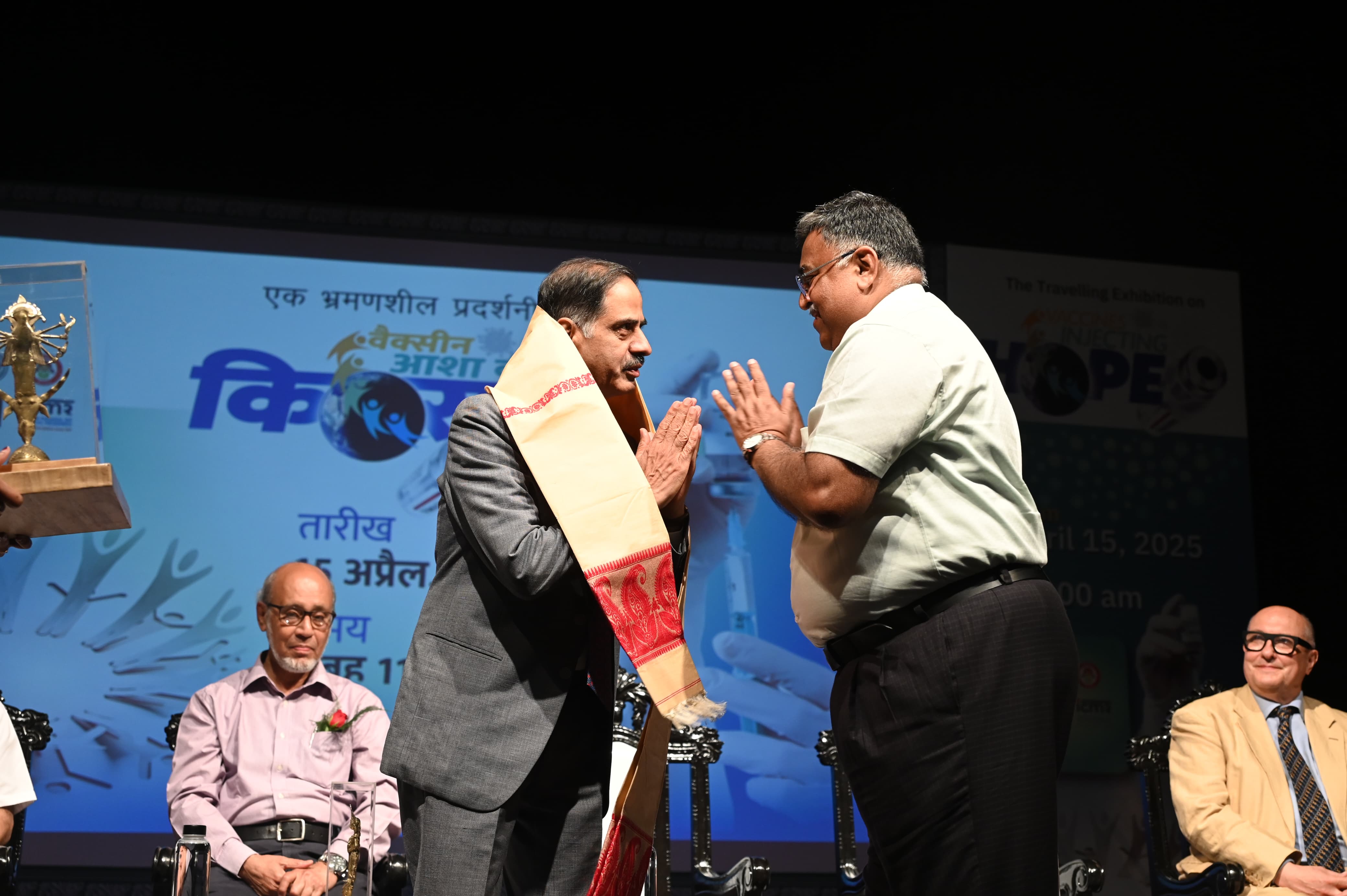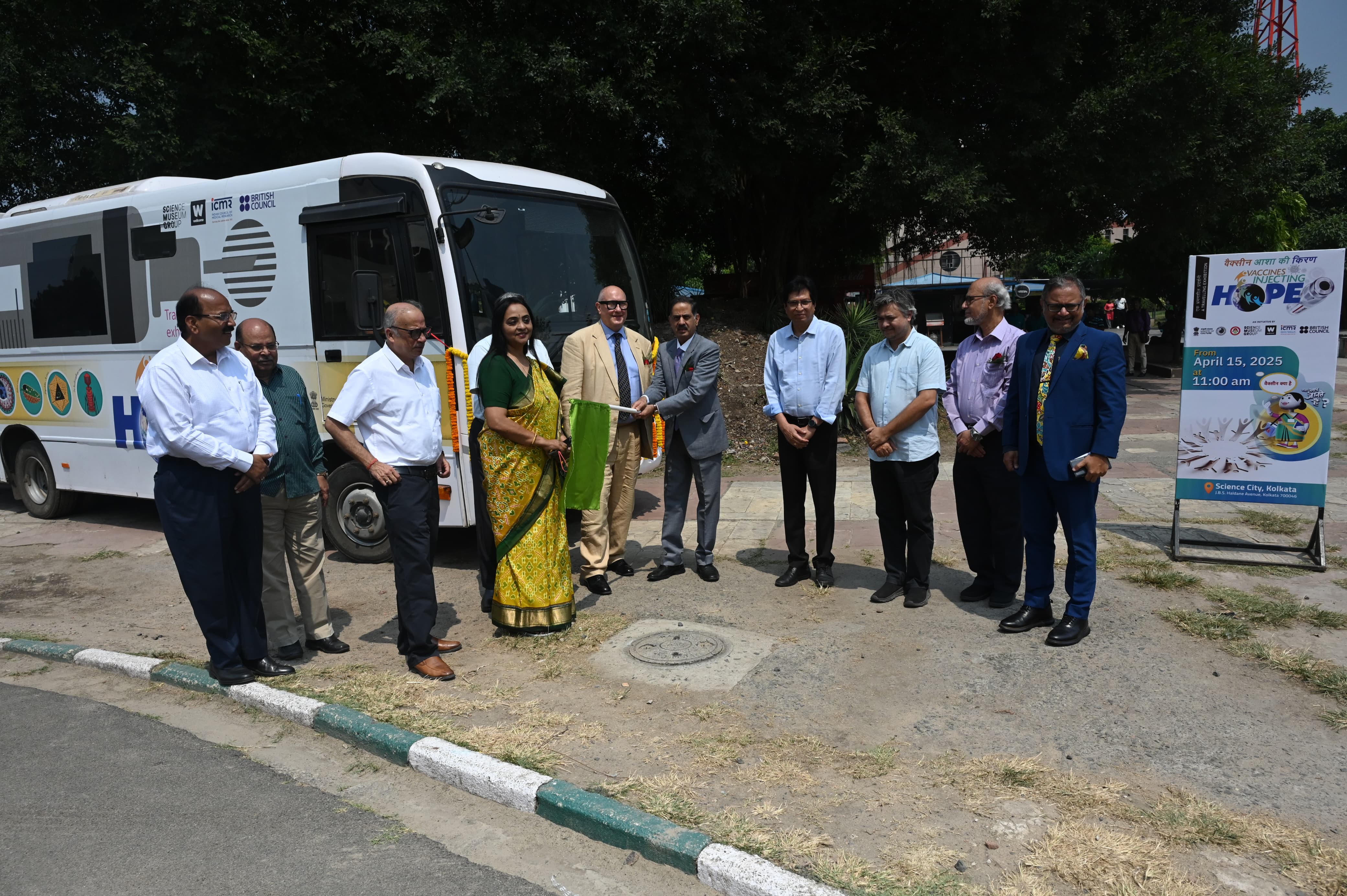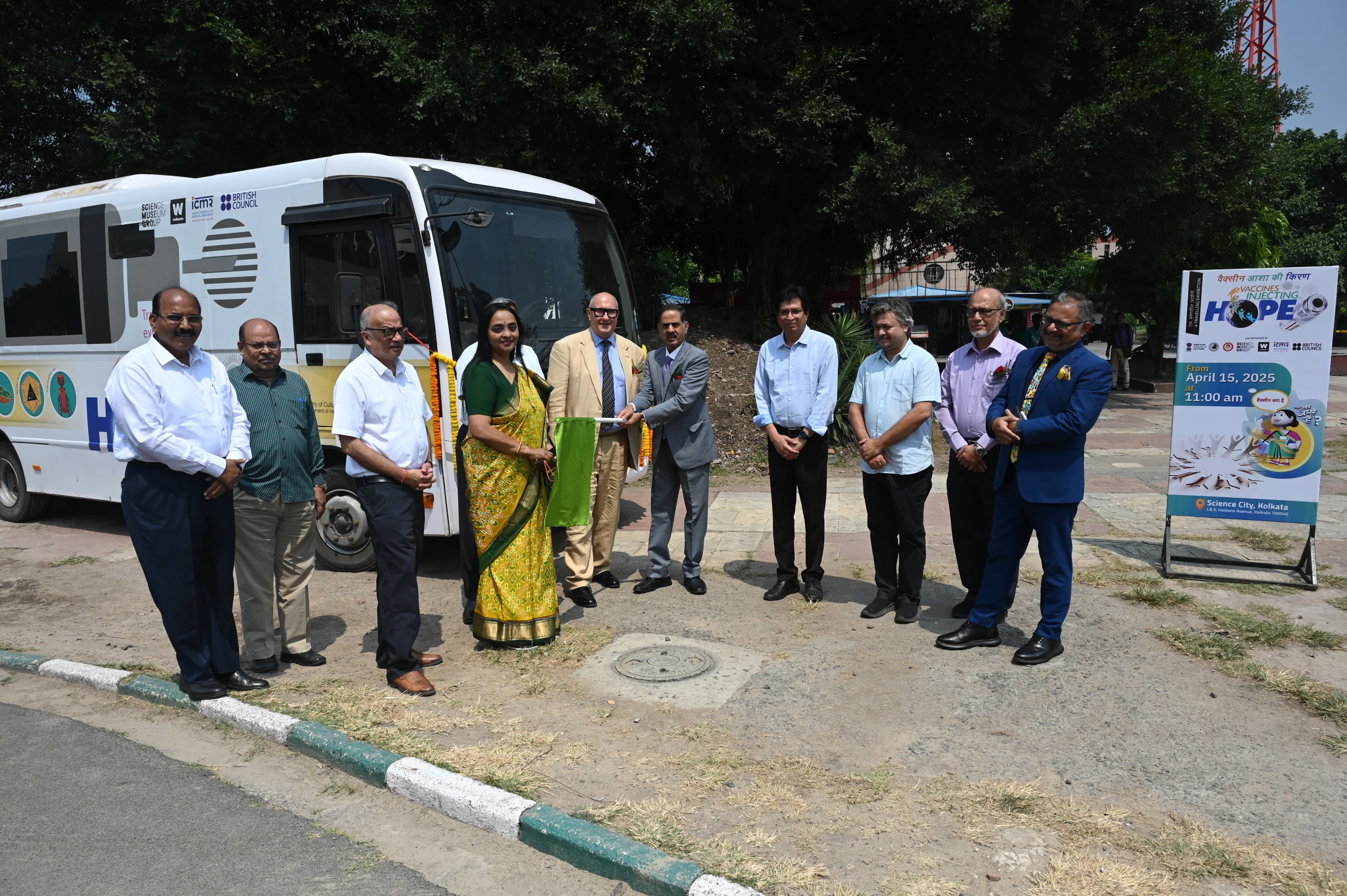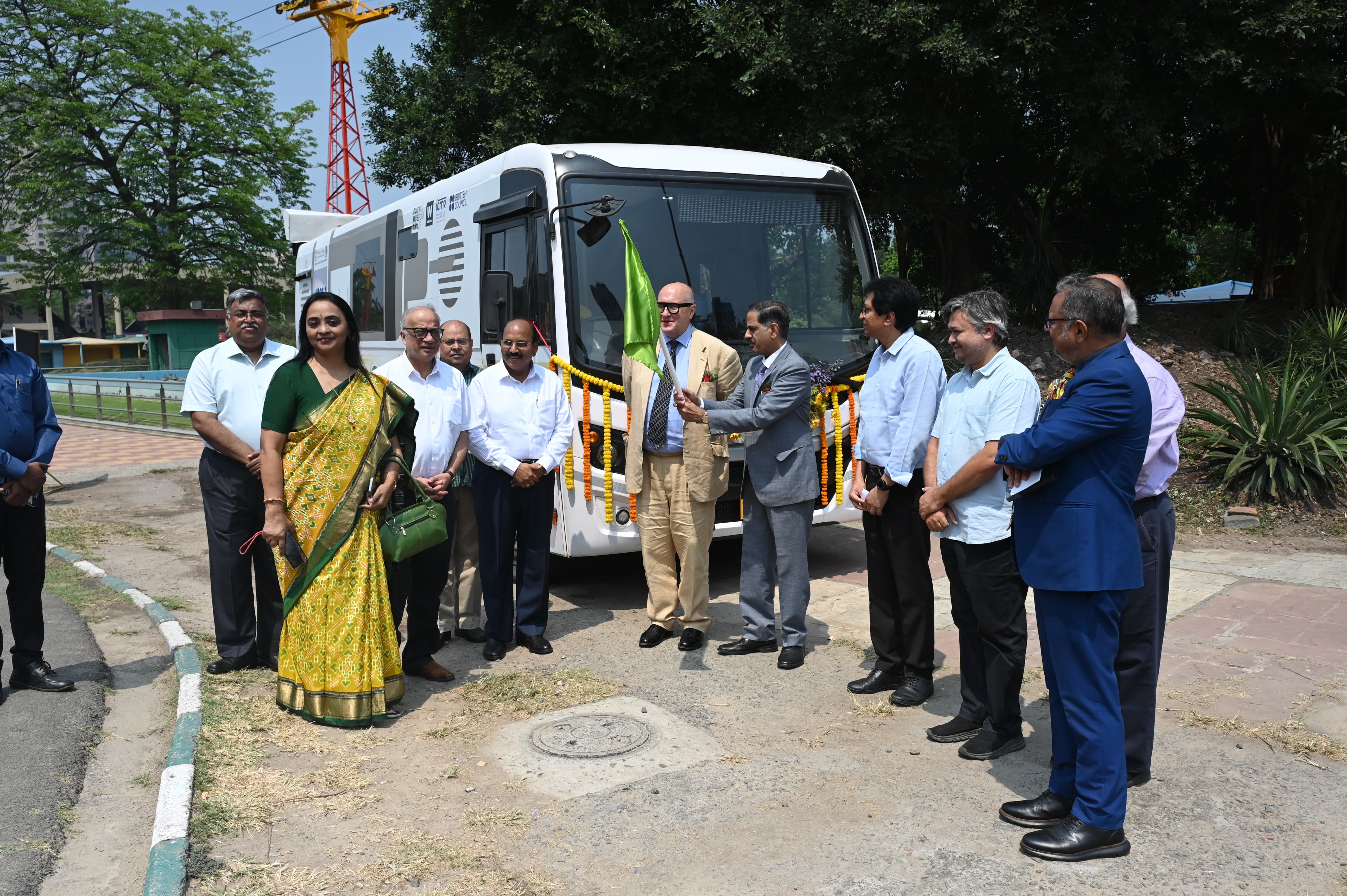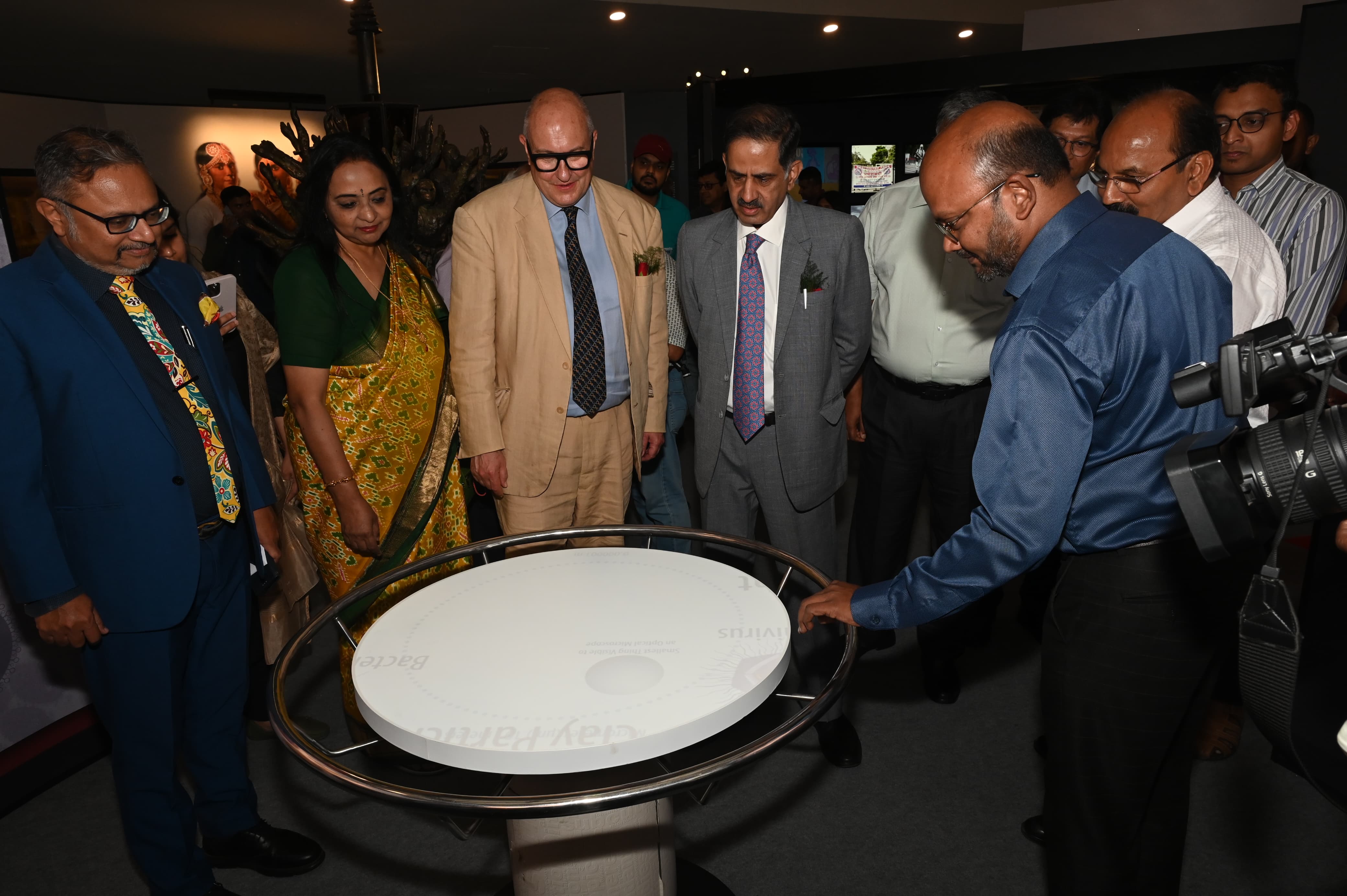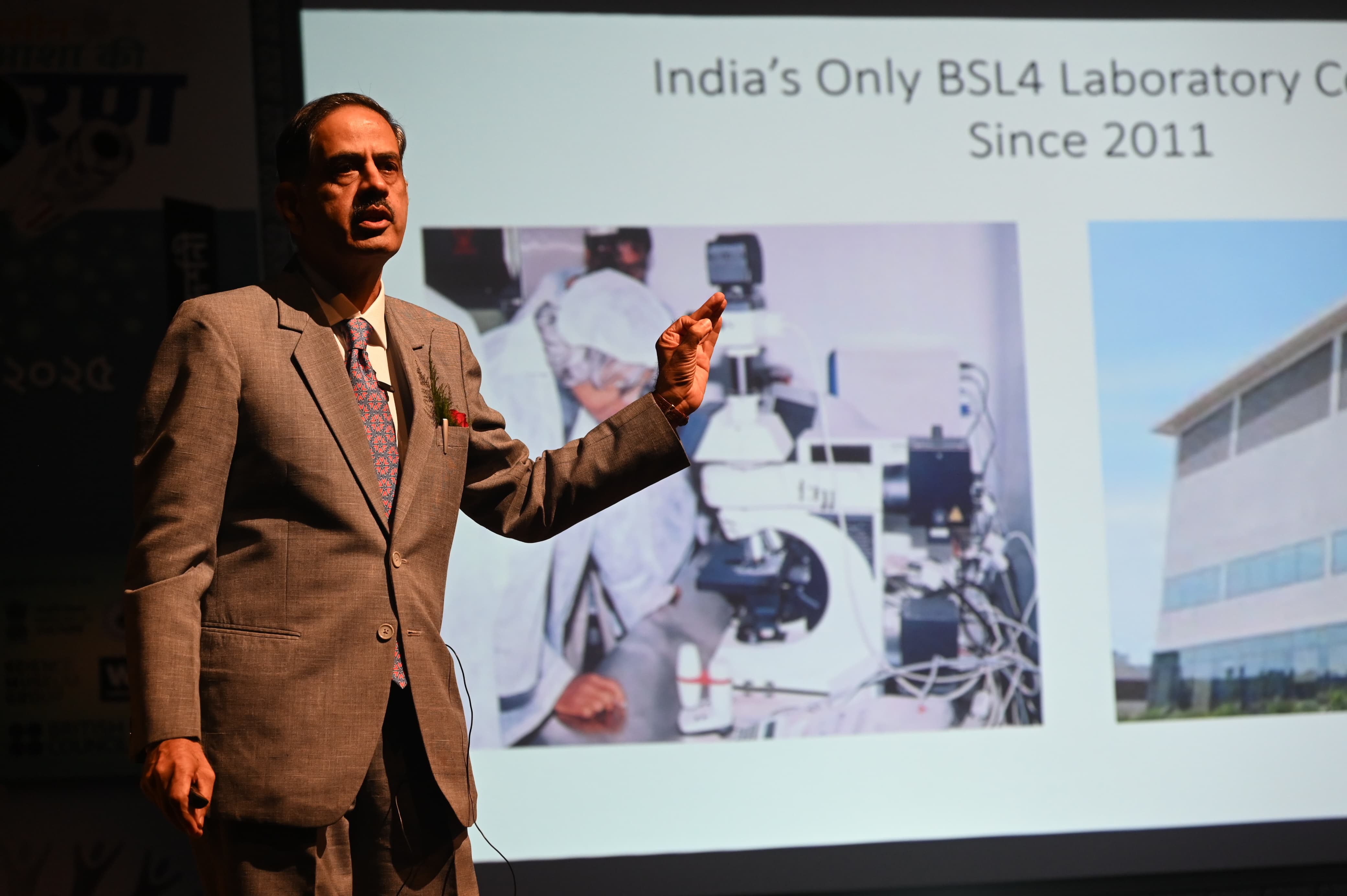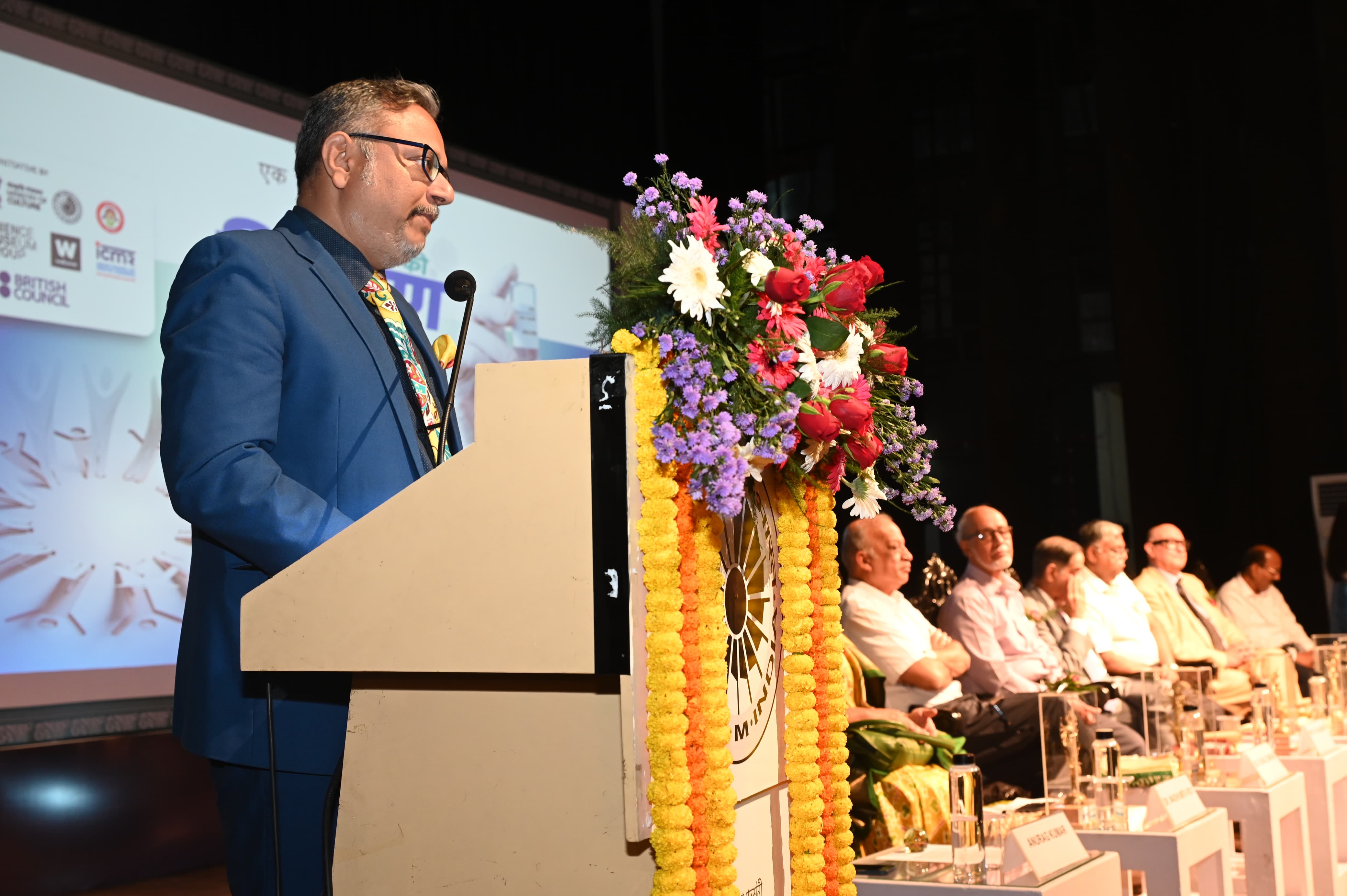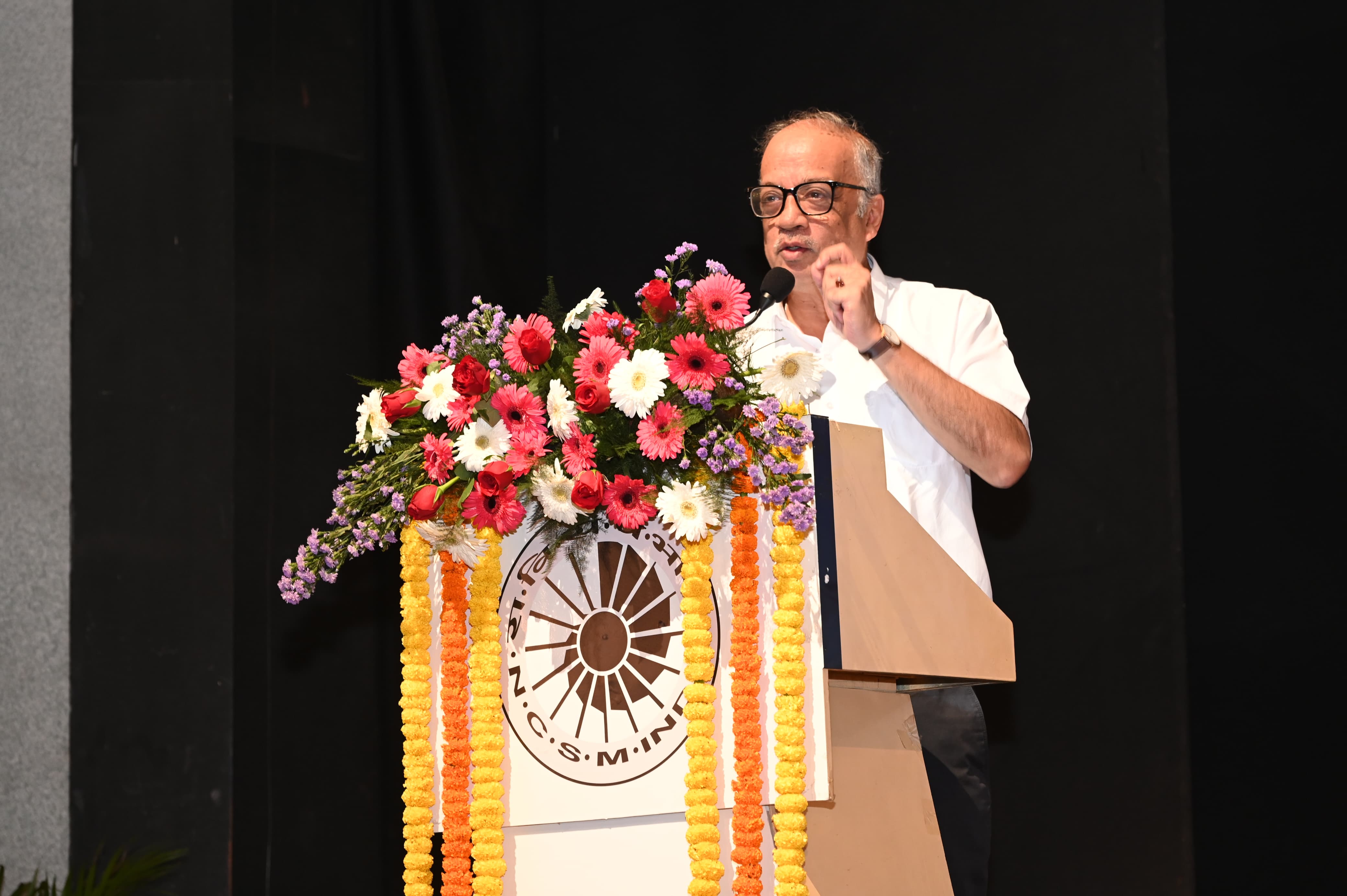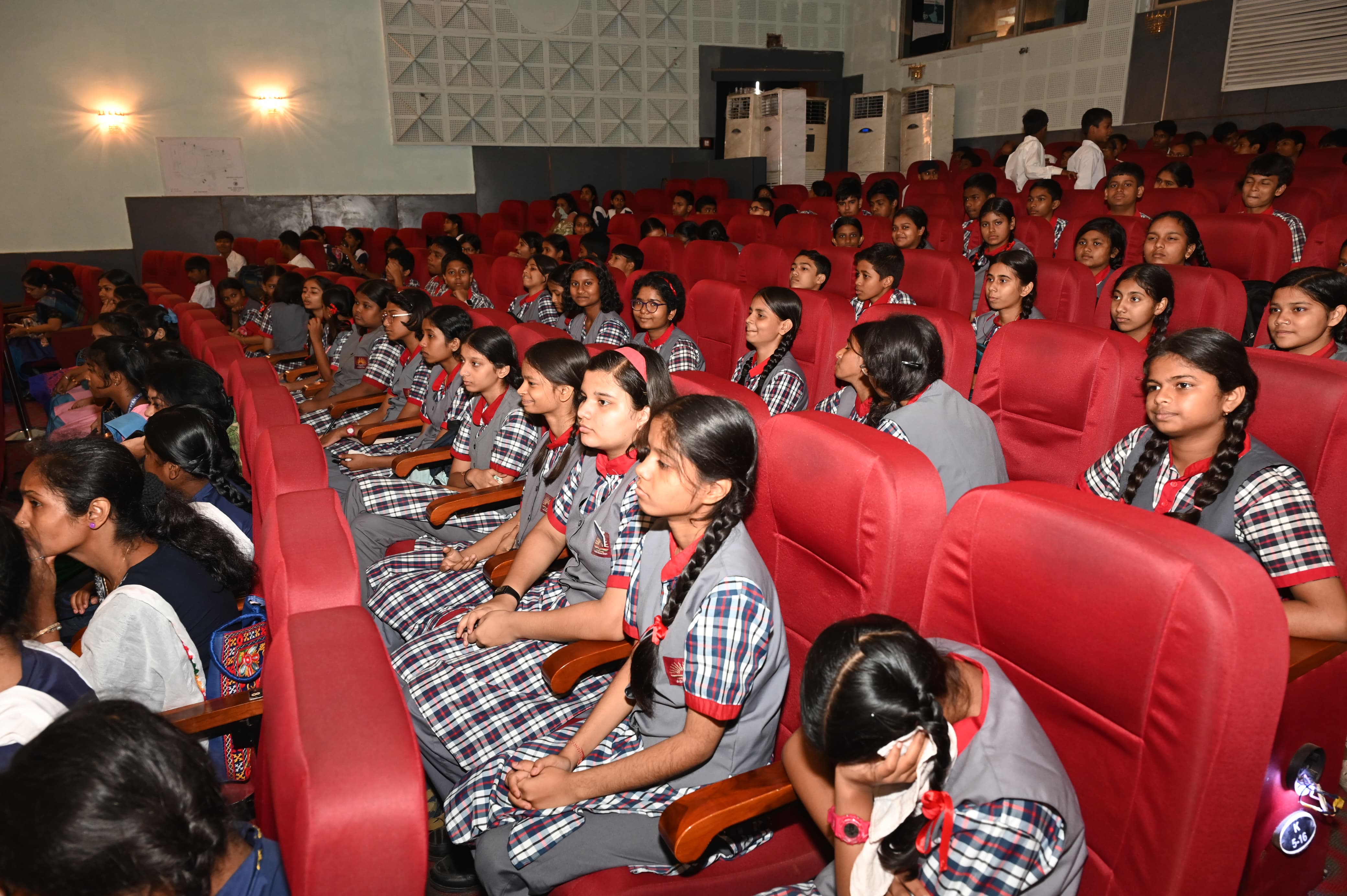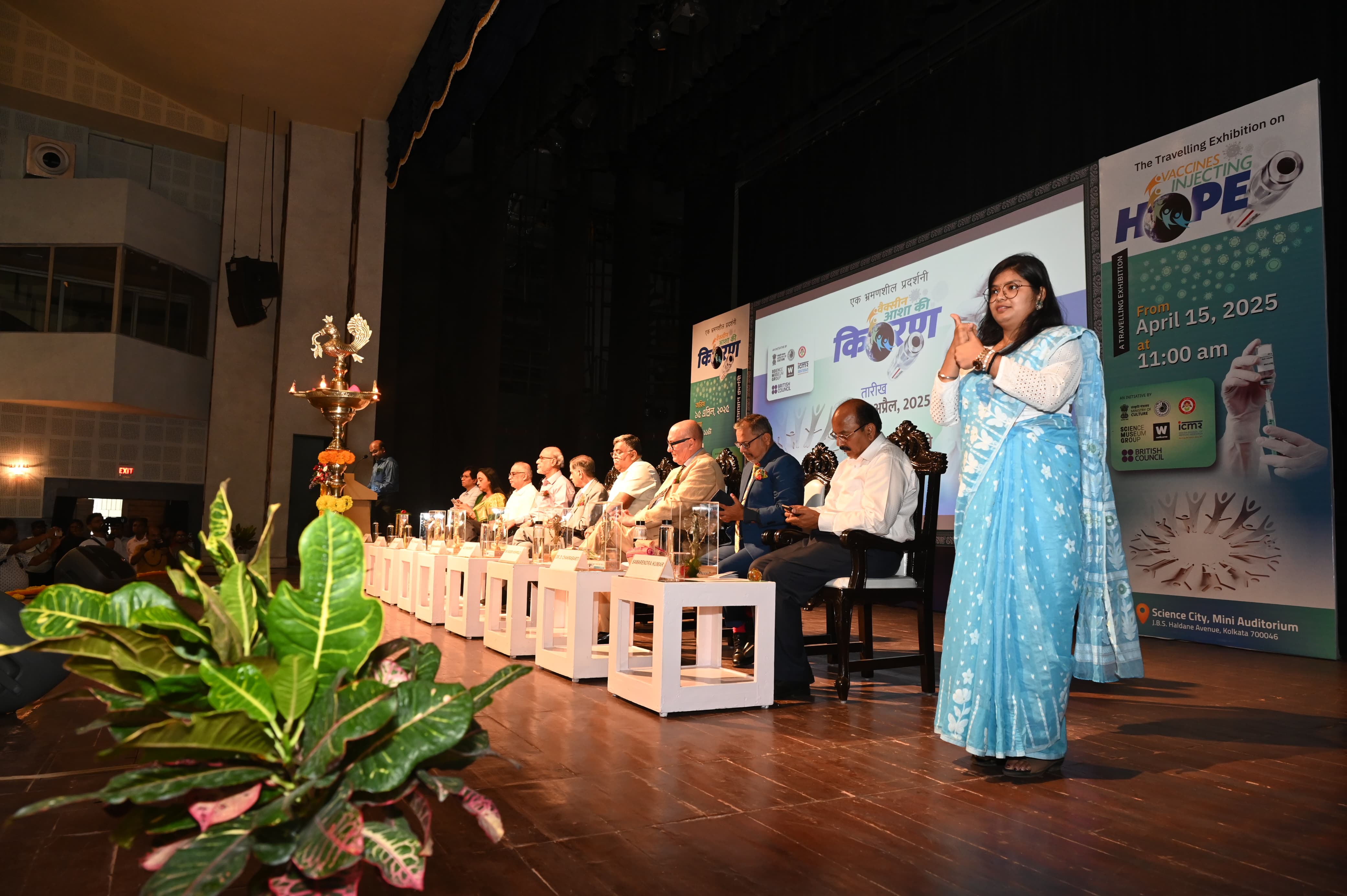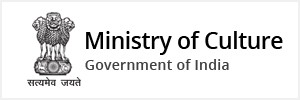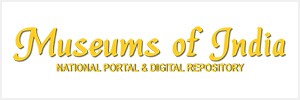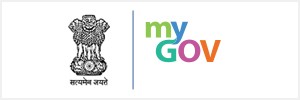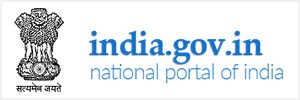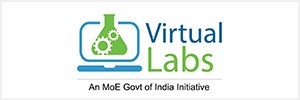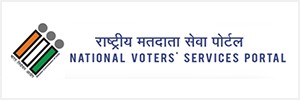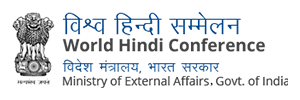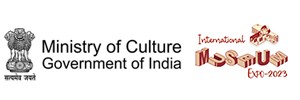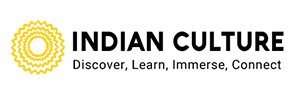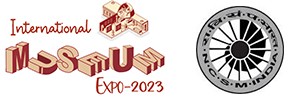- National Council of Science Museums (NCSM) and Science Museum Group, London have joined hands to tell the story of the global effort to develop vaccines at pandemic speed
- Started from November 15, 2022, the exhibition has travelled to Delhi, Nagpur, Mumbai, Bangalore. Now, starting from April 15, the exhibition will be on display at Science City, Kolkata till September 30, 2025 and it is expected to reach out to more than 2 million people.
- The exhibition has been made possible with support from Wellcome, UK, ICMR, India and other research and scientific organisations in India.
- A specially designed Mobile Science Exhibition Bus will travel to nearby areas of Kolkata to raise awareness about the importance of vaccines in saving human lives.
- The exhibition showcases an art installation commissioned by the British Council as part of the India/UK Together Season of Culture
Today, an international travelling exhibition “Vaccines Injecting Hope” was inaugurated by Prof. Dr. Balram Bhargava, Padma Shri awardee and former Director General of ICMR, at Science City, Kolkata, in the august presence of Prof. Partha P. Majumder, National Science Chair (Scientific Excellence), Government of India; Dr. Roger Highfield, Director, Science, Science Museums Group, London; Dr. Kunal Sarkar, Senior Vice Chairman, Director and Head of Cardiac Surgery, Medica Super specialty Hospital; Dr. Madhumita Roy, Head and Senior Scientific Officer, Dept. of Environmental Carcinogenesis & Toxicology, Chittaranjan National Cancer Institute, Kolkata; Dr. Debanjan Chakrabarti, Director, British Council, East and Northeast India, Mr. A. D. Choudhury, DG, NCSM; Mr. Samarendra Kumar, DDG, NCSM, and Mr. Anurag Kumar, Director, Science City, Kolkata.
The Covid-19 pandemic struck the unsuspecting world with terrible ferocity and swiftness in January 2021 and claimed huge casualties. But unlike such earlier outbreaks, the world was prepared to quickly devise a defence to this new virulent disease. Where vaccines took decades to be formulated, in this case, scientists of the world could, using modern techniques hitherto unknown and unused, devise several versions of an effective vaccine in less than a year of its appearance. The virus was overpowered if not defeated. This exhibition, curated by NCSM and the Science Museum Group of the UK, tells us the story of the creation of a modern-day vaccine and its many facets, with its human side.
The exhibition has sections on ‘The Arrival of New Virus’, ‘Designing a New Vaccine’, ‘Trials, Results and Approvals’, ‘Scaling Up and Mass Production’, ‘Vaccine Rollout’, ‘Living with COVID’ and tells the story of the global effort to find new ways to develop vaccines at pandemic speed and look at vaccinations more broadly with a historical and contemporary view. The exhibition set out the scientific principles underlying a vaccine’s creation and efficacy while capturing the behind-the-scenes work that accompanies their rapid development, production, transport, and delivery. The exhibition showcases ‘Through The Lens’, an artwork commissioned by the British Council and created through collaboration between an Indian sculptor based in Delhi, Sushank Kumar, and a playwright in London, Nigel Townsend. The artwork seeks to explore our relationship with vaccination historically and in the light of the recent Covid-19 pandemic.
The exhibition has been developed by the National Council of Science Museums (NCSM) in collaboration with Science Museum, London, and with support from Wellcome, UK; ICMR, India; NIV, Pune; Serum Institute of India; CSIR; AIIMS; NIBMG, Kalyani; and various other research and scientific organisations.
Mr. Arijit Dutta Choudhury, Director General of the National Council of Science Museums (NCSM), India, said, “After the grand success of the exhibition ‘Superbugs: The End of Antibiotics?’ this is another project where we have collaborated with the SMG group, London, for raising awareness among the masses about the importance of vaccines in our lives. Due to the Corona pandemic, it has been proved very much relevant in India. This time we had added one Mobile Science Exhibition (MSE) bus to travel to the nearby areas of each location and covered the people who were not able to visit the exhibition in person. The MSE Bus has mainly communicated the messages of the exhibition in rural areas.”
Sir Ian Blatchford, Director and Chief Executive, Science Museum Group said- “As a globally celebrated alliance of science museums, we hope to archive points of views on existential threats that affect global citizens. The COVID-19 pandemic has doubtless been a defining inflexion point in the current history of the world. Over the past two years, our curators along with those from the National Council of Science Museums (NCSM) have been researching stories and identifying objects from across the world that reflect the medical, public health, industrial, and scientific responses to the pandemic – one that we hope will represent the remarkable global effort that succeeded in creating effective COVID-19 vaccines and overcoming vaccine resistance. This has been a gargantuan effort – that changed shape as the threat evolved and presented itself in new ways over the recent few years. And it is a gratitude to all those who have made new beginnings possible.”
“The exhibition has been very successful in communicating the message of the importance of vaccines in saving lives. Till now, more than 18.2 lakh people have been benefitted by visiting the exhibition, and additionally, we have reached out to more than 26 lakh people through social media,” said Mr. Samarendra Kumar, Dy. Director General of the National Council of Science Museums (NCSM) and Head & Coordinator of the project in India.
Mr. Anurag Kumar, Director, Science City, Kolkata, said, “The exhibition will be on display at Science City, Kolkata, from April 15, 2025, till September 2025, and will be open to the public from 9.30 am to 6.00 pm daily. We have planned various educational programs and interactive activities during the period to educate and engage the masses, and I invite the people of Kolkata to visit the exhibition and participate in these activities. I hope the exhibition will definitely increase their understanding of the importance of vaccines in saving lives.”
Students from various schools of Kolkata participated in the inaugural programme and visited the exhibition
For further information please contact:
India Contacts:
- S. Kumar, Dy. Director General, National Council of Science Museums
Email: ddg@ncsm.gov.in - Satyajit N. Singh, PRO, National Council of Science Museums
Email: pro@ncsm.gov.in, proncsm@gmail.com
ABOUT THE ORGANISERS:
About Science Museum Group
The Science Museum Group is the world’s leading group of science museums, welcoming over five million visitors each year to five sites: the Science Museum in London; the National Railway Museum in York; the Museum of Science and Industry in Manchester; the National Science and Media Museum in Bradford; and Locomotion in Shildon. We share the stories of innovations and people that shaped our world and are transforming the future, constantly reinterpreting our diverse collection.
Standout objects include the record-breaking locomotive Flying Scotsman, Richard Arkwright’s textile machinery, Alan Turing’s Pilot ACE computer and the earliest surviving recording of British television. Our mission is to inspire futures - igniting curiosity among people of all ages and backgrounds. Each year, our museums attract more than 600,000 visits by education groups, while our touring exhibition programme brings our creativity and scholarship to audiences across the globe. More information can be found at https://group.sciencemuseum.org.uk/.
About National Council of Science Museums
National Council of Science Museums (NCSM), a premiere institution in the field of science communication, is an autonomous organization under the Ministry of Culture, Govt. of India. Primarily engaged in popularizing Science and Technology through a network of science centres, Mobile Science Exhibitions (MSE) units that visit rural schools and organise plethora of activities for public and students in particular, NCSM has now become a trend setter in the field of science communication both at national and international level. Presently NCSM, with its Headquarters in Kolkata, administers and manages 26 science museums/centres spread across the country and is the world’s largest network of science centres and museums that functions under a single administrative umbrella with an annual reach to about 15 million people. Innovation Hubs set up by NCSM, provide expert guidance and professional lab equipment facilities to young students to nurture creativity, innovation and engagement in science. 47 hubs are functional in science centres/institutions across the country reaching about 10,000 students annually through each hubs. For further information please visit www.ncsm.gov.in
About Wellcome
Wellcome exists to improve health for everyone by helping great ideas to thrive. We're a global charitable foundation, both politically and financially independent. We support scientists and researchers, take on big problems, fuel imaginations and spark debate. www.wellcome.ac.uk
About ICMR
Indian Council of Medical Research (ICMR) is one of the oldest and largest medical research bodies that is nurturing the biomedical research and innovation in India. In line with the national health priorities, ICMR is generating scientific evidence in different disciplines that are indispensable for delivering quality health care at all levels. ICMR encourages capacity building for young researchers, scientists, medical and allied health professionals across the country. Council is committed to create a vibrant platform to tackle national and regional health problems through its progressive undertakings and partnerships. To address the AMR challenge, ICMR through its AMR Research Initiative is working with different stakeholders and partners to strengthen the evidence, improve diagnosis and rationalize antibiotics use for treatment of drug resistant infections. For further information please visit https://www.icmr.gov.in/

